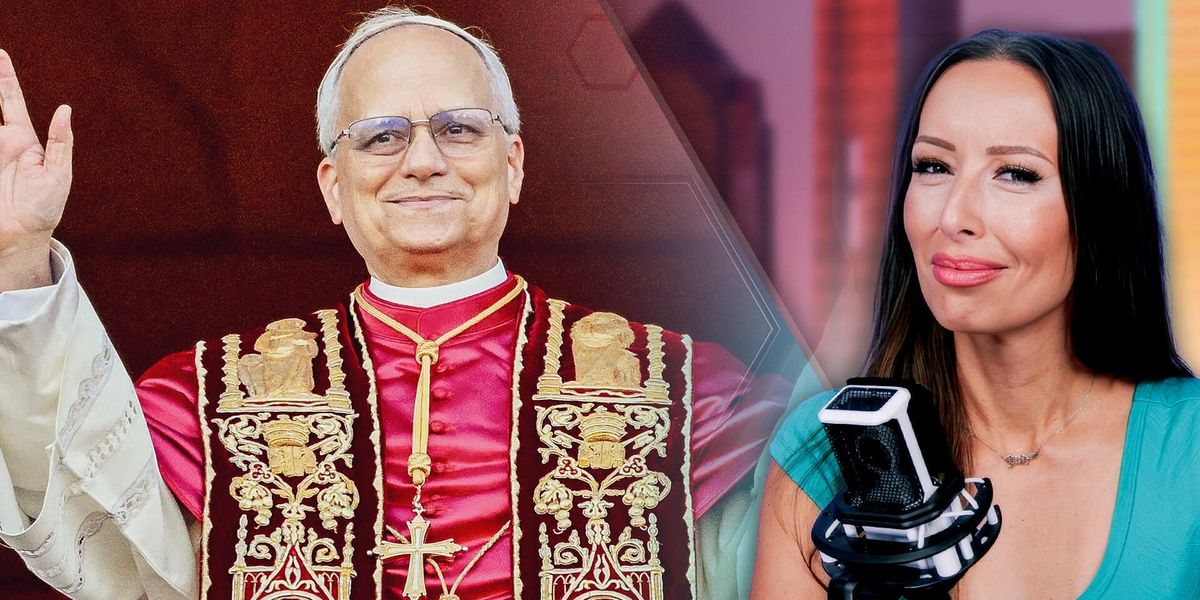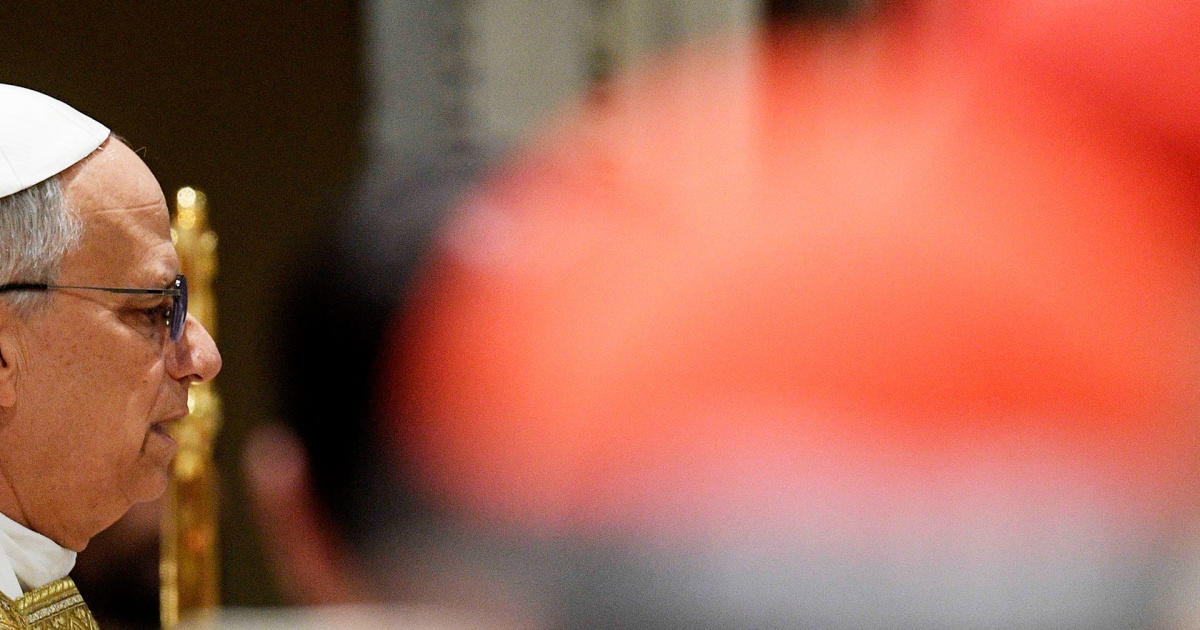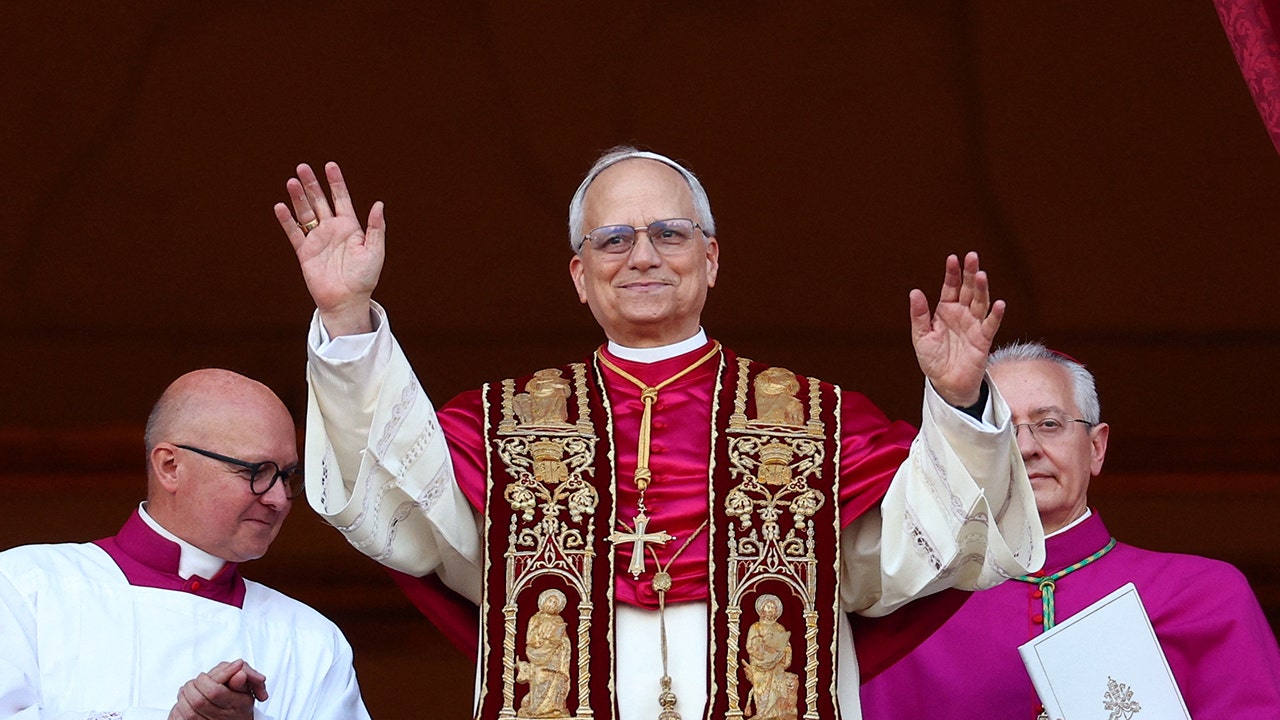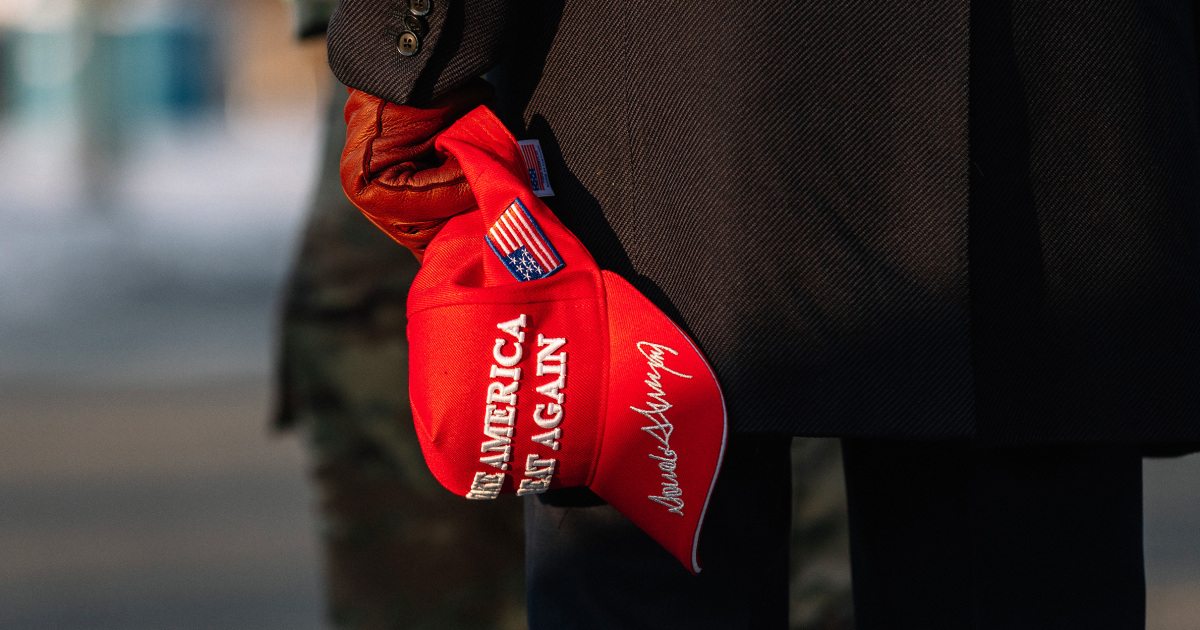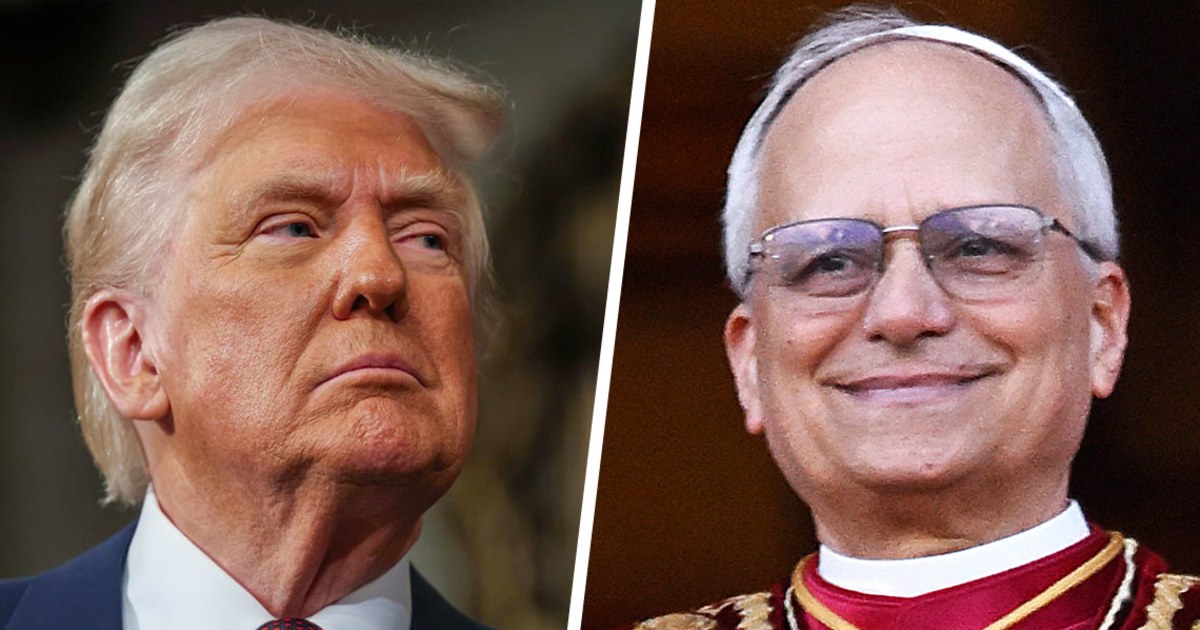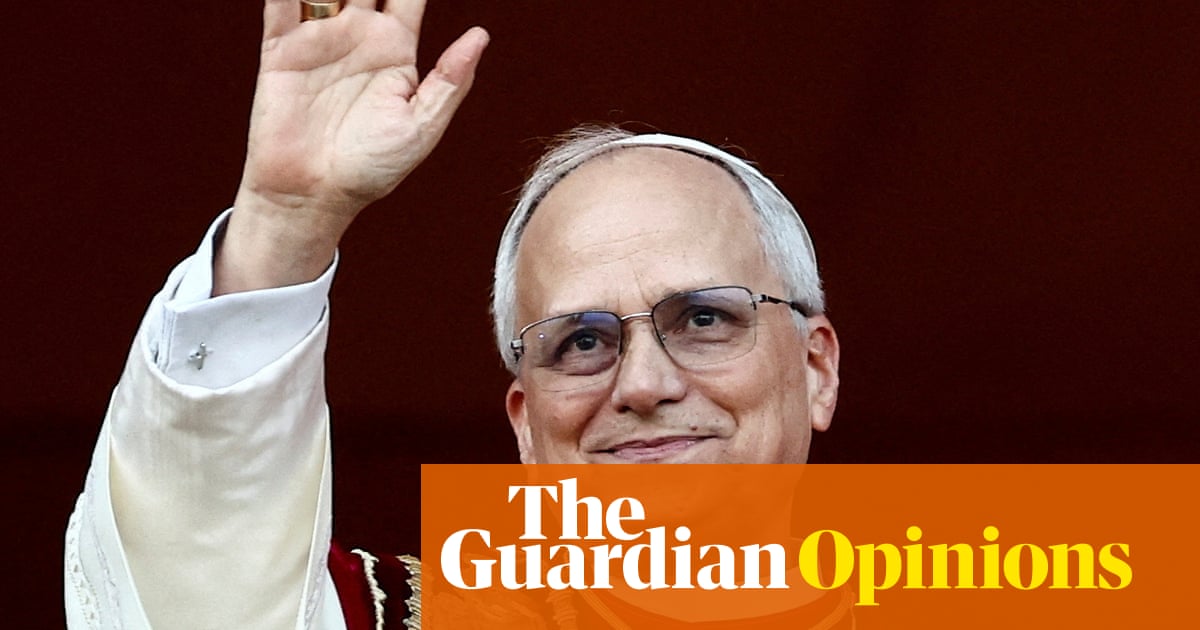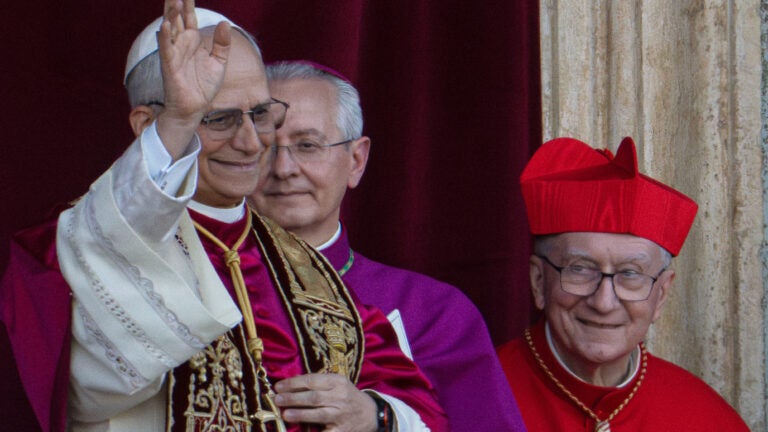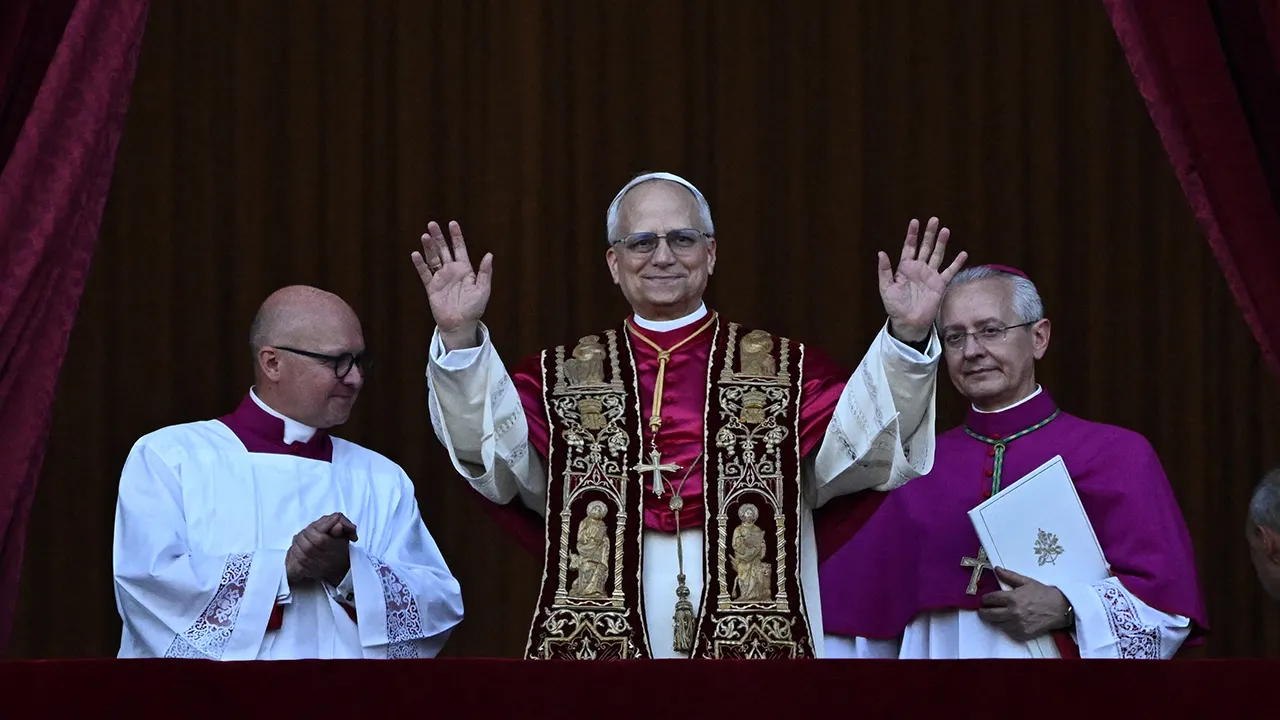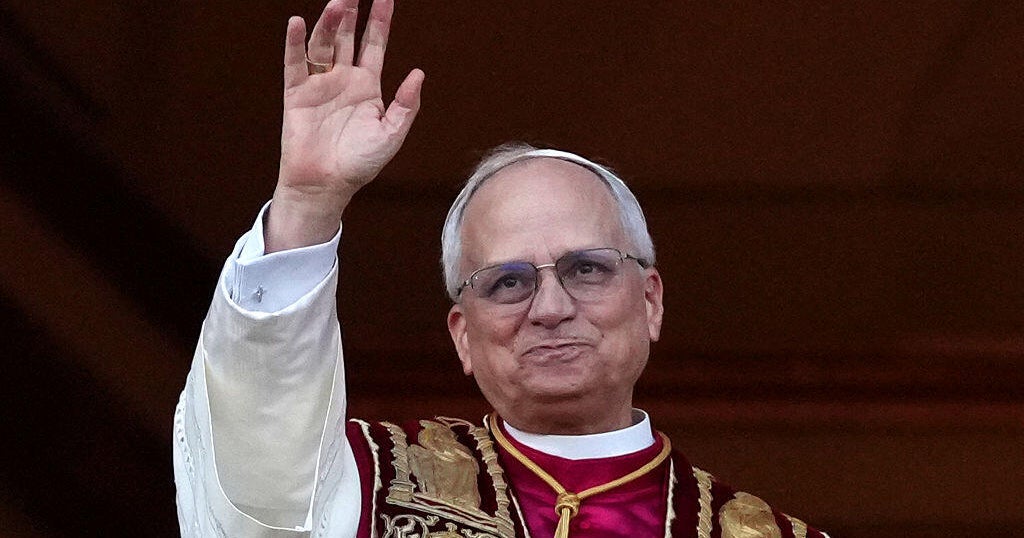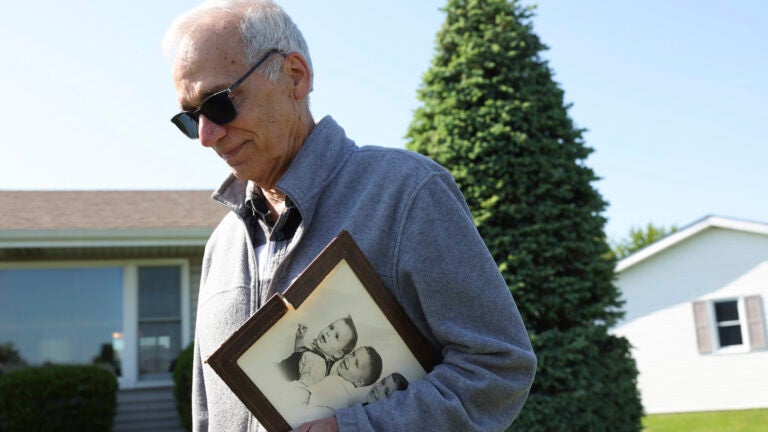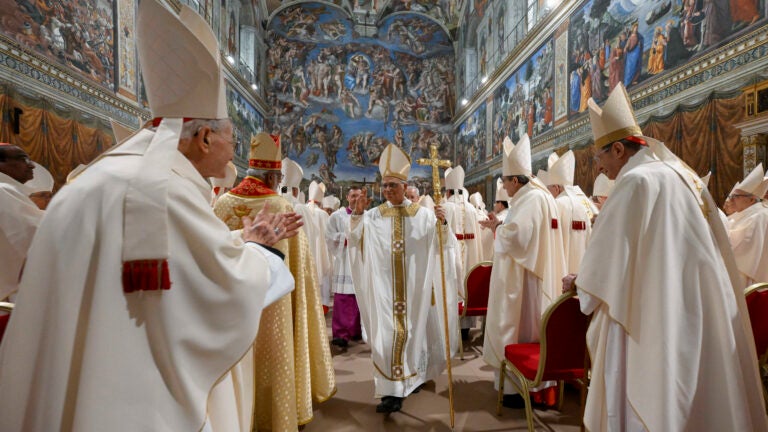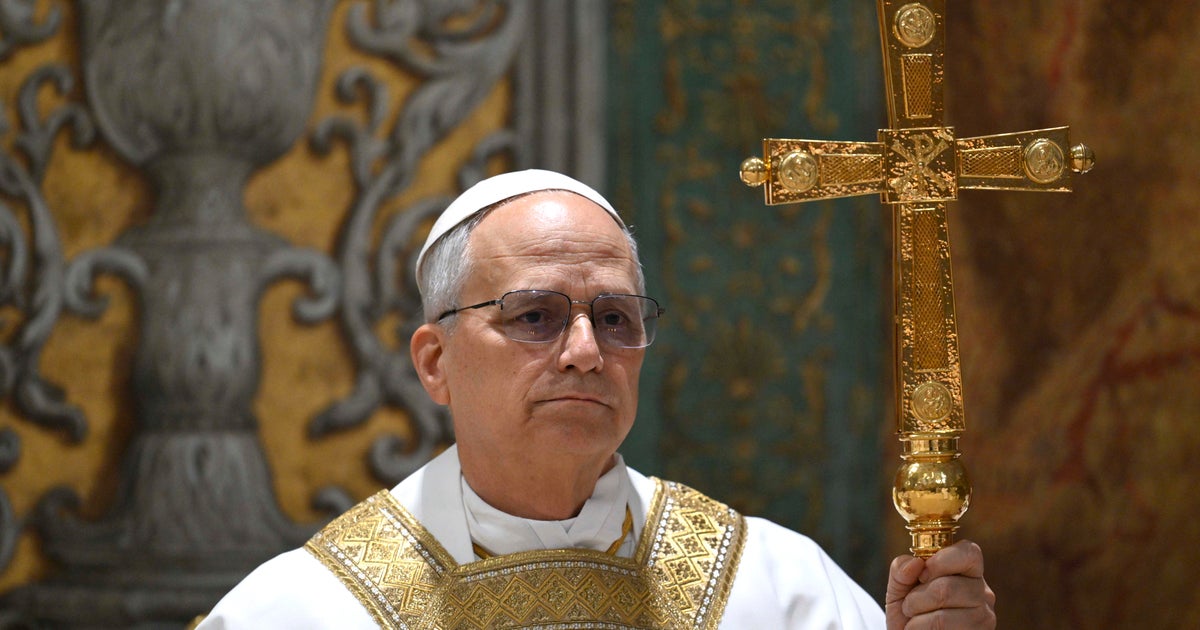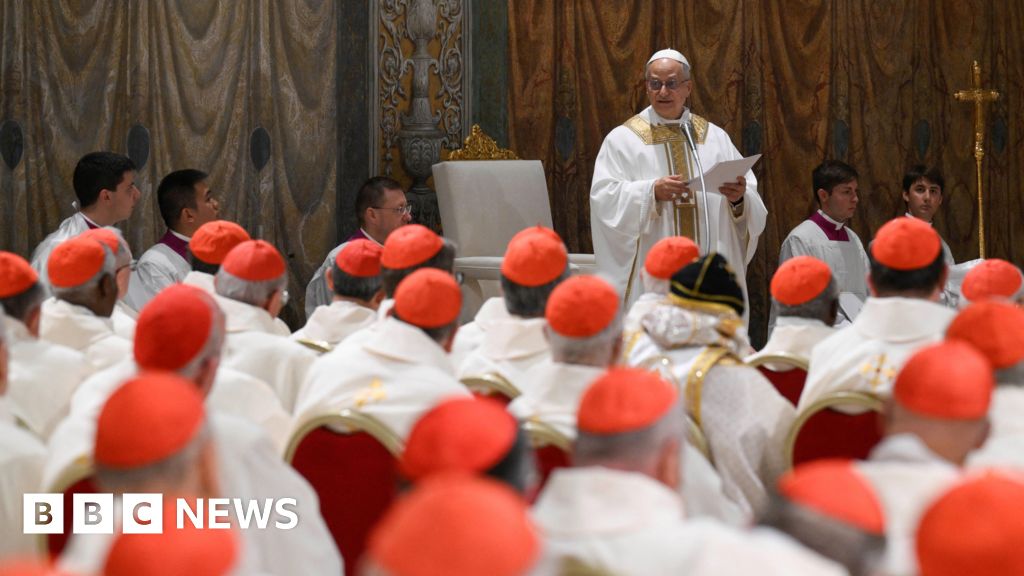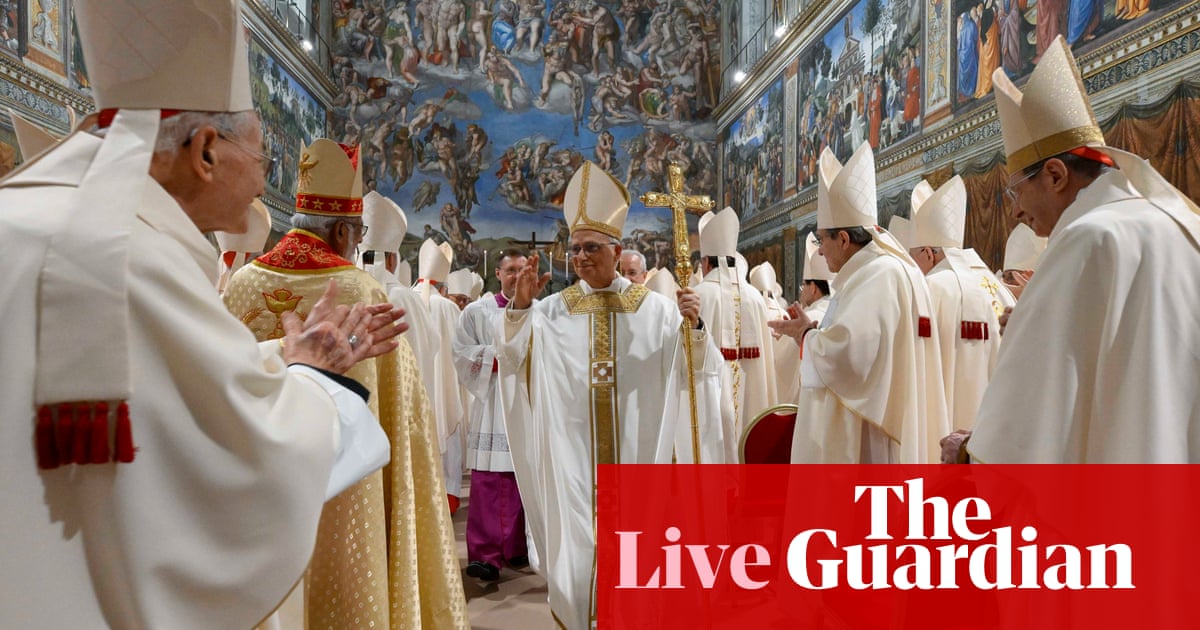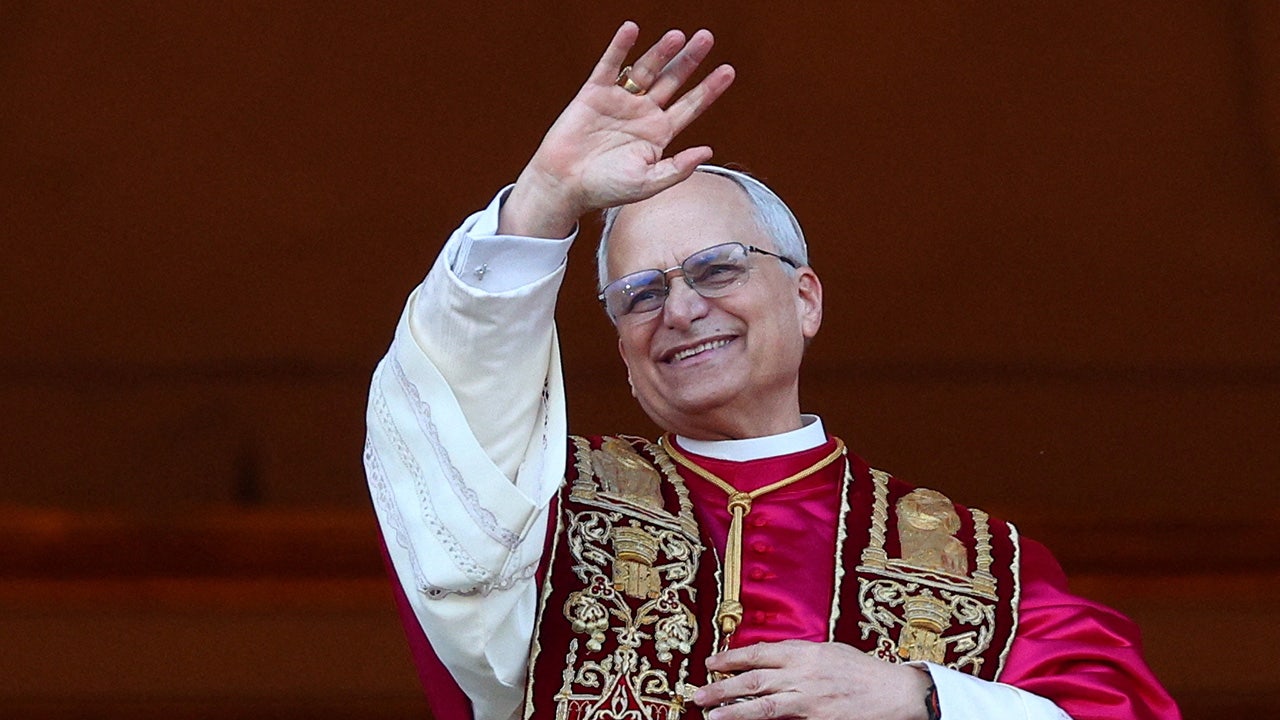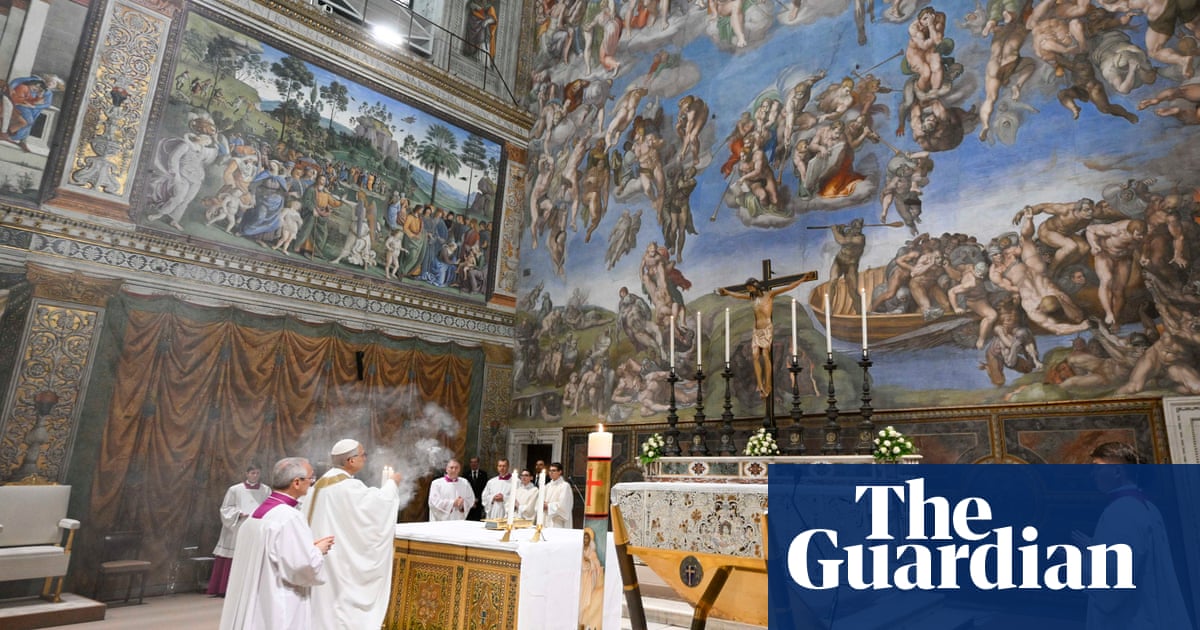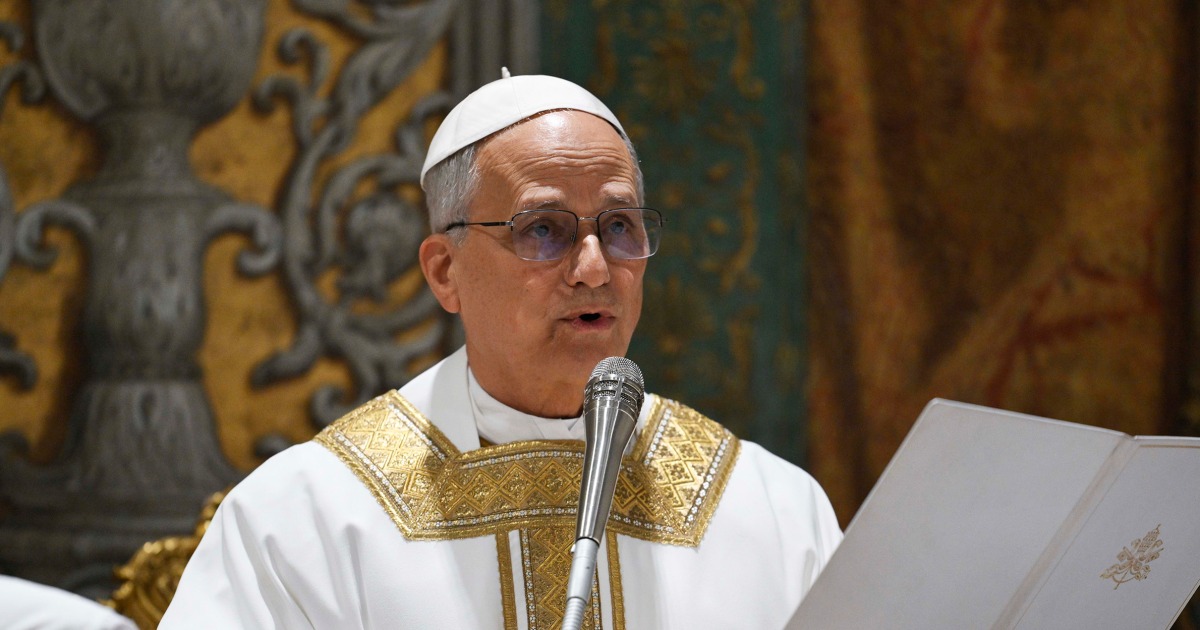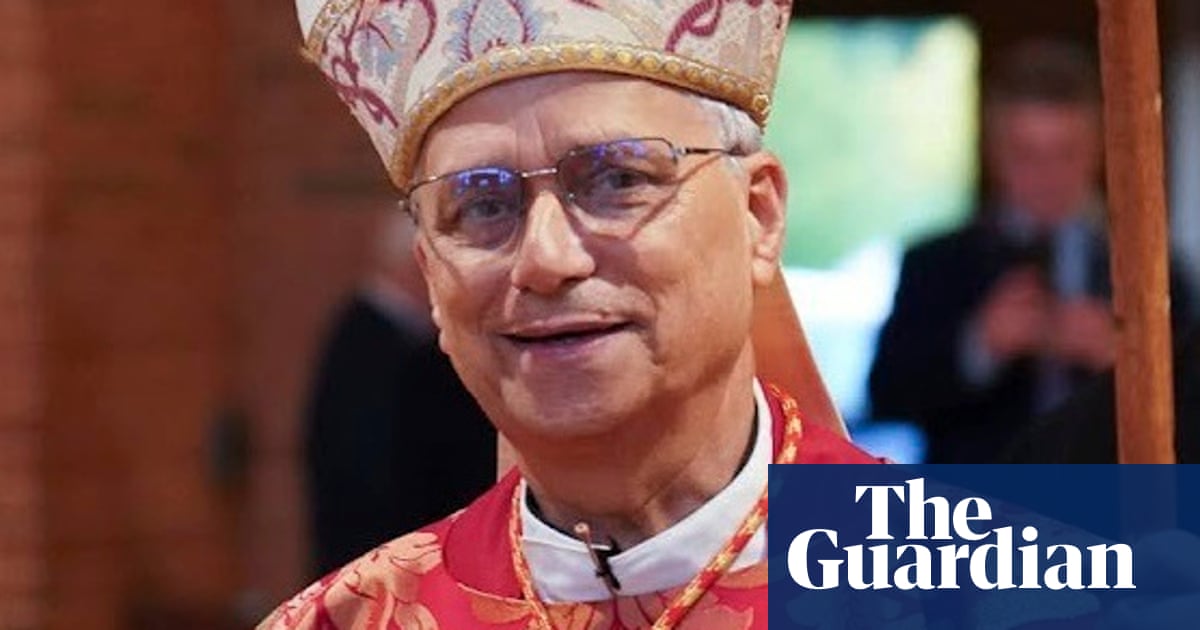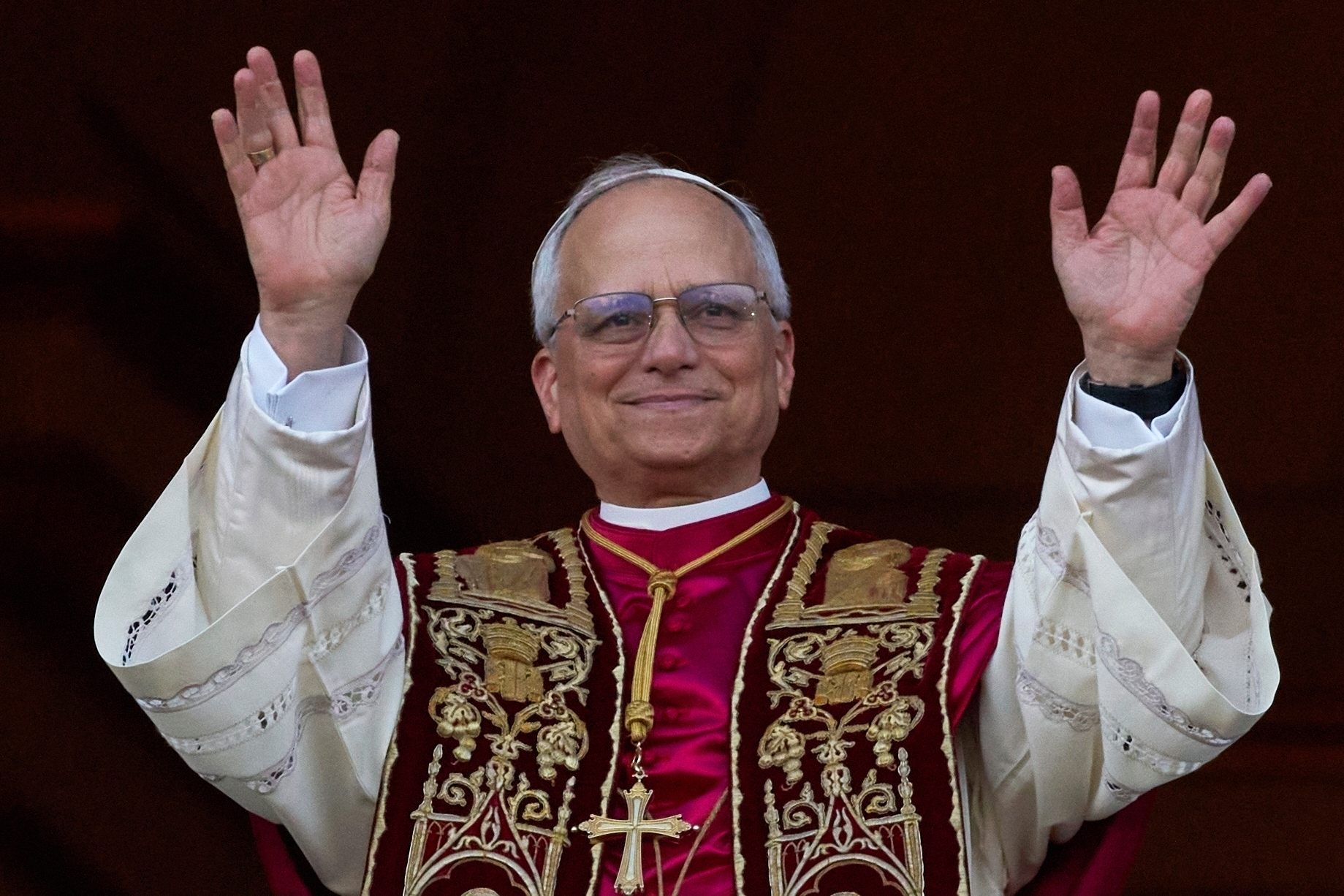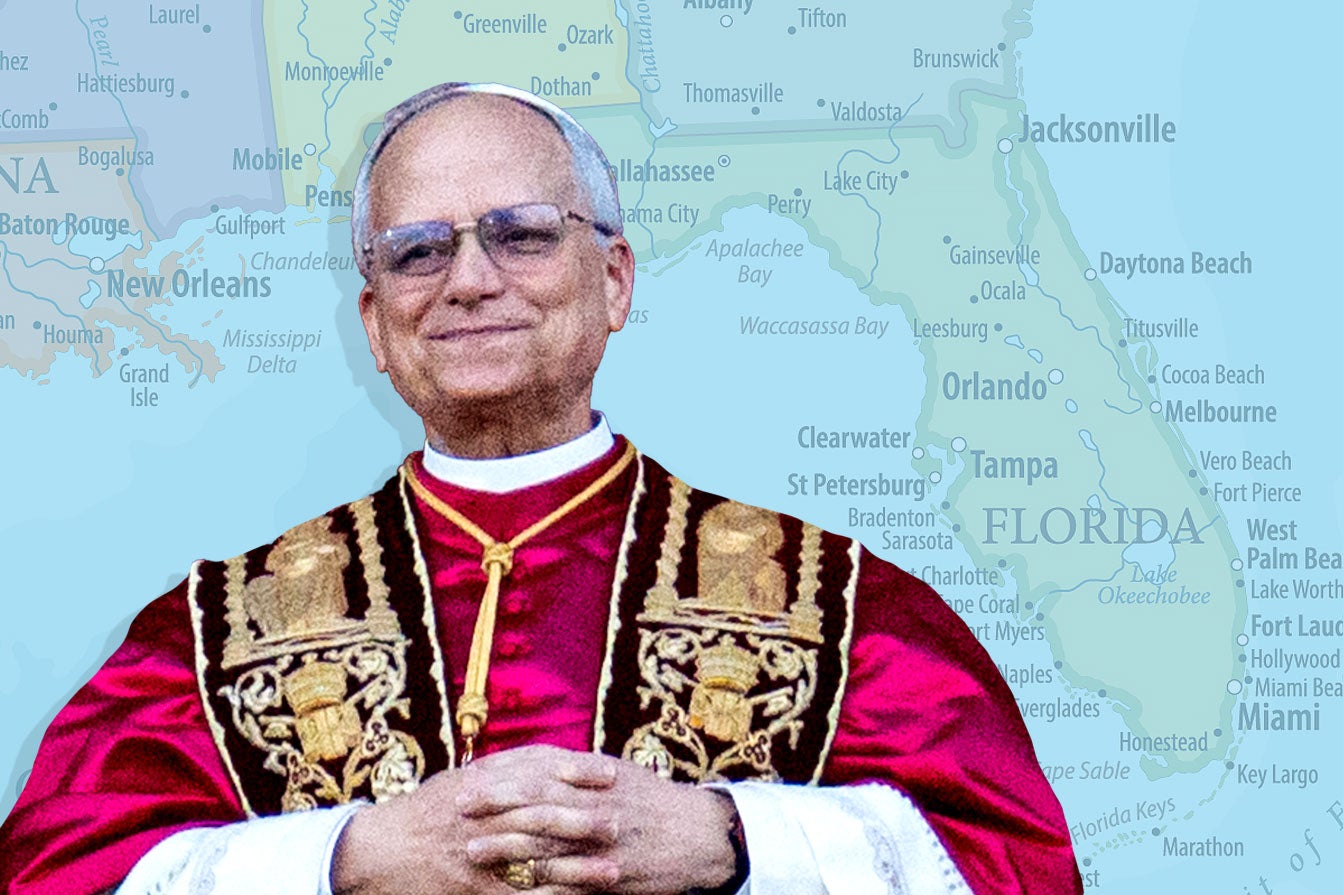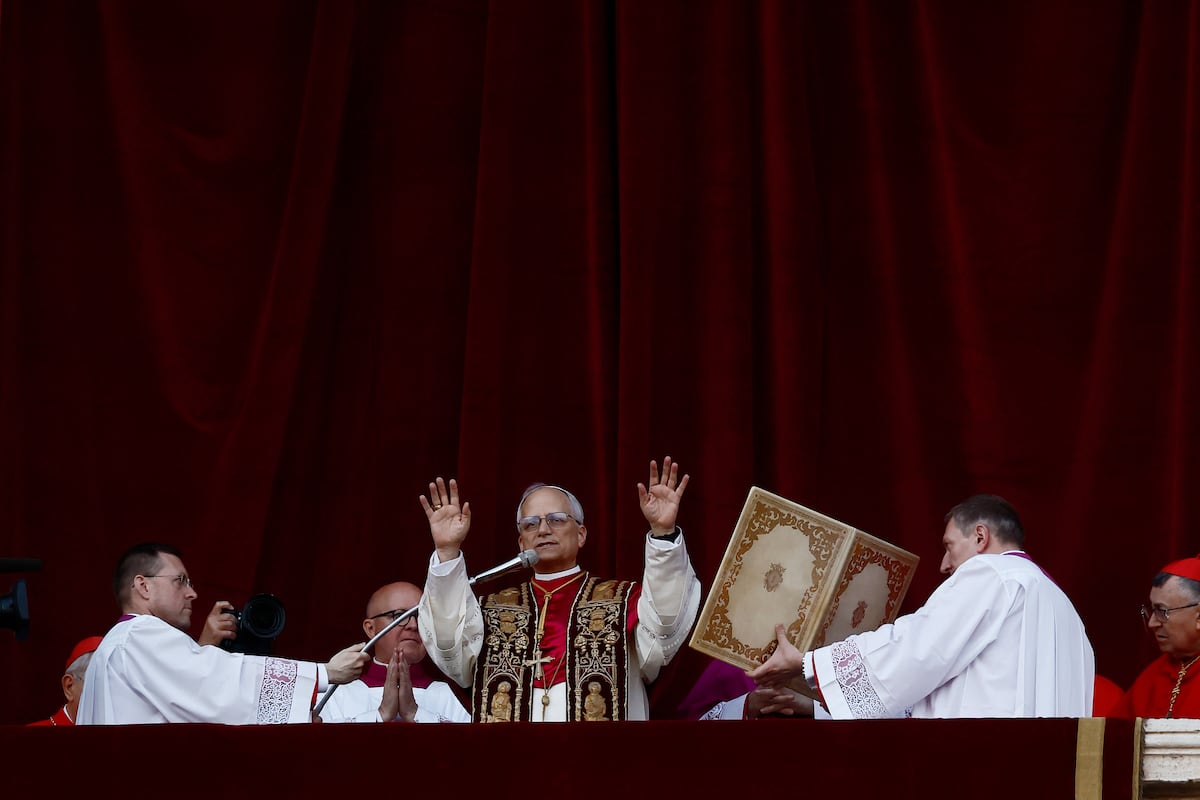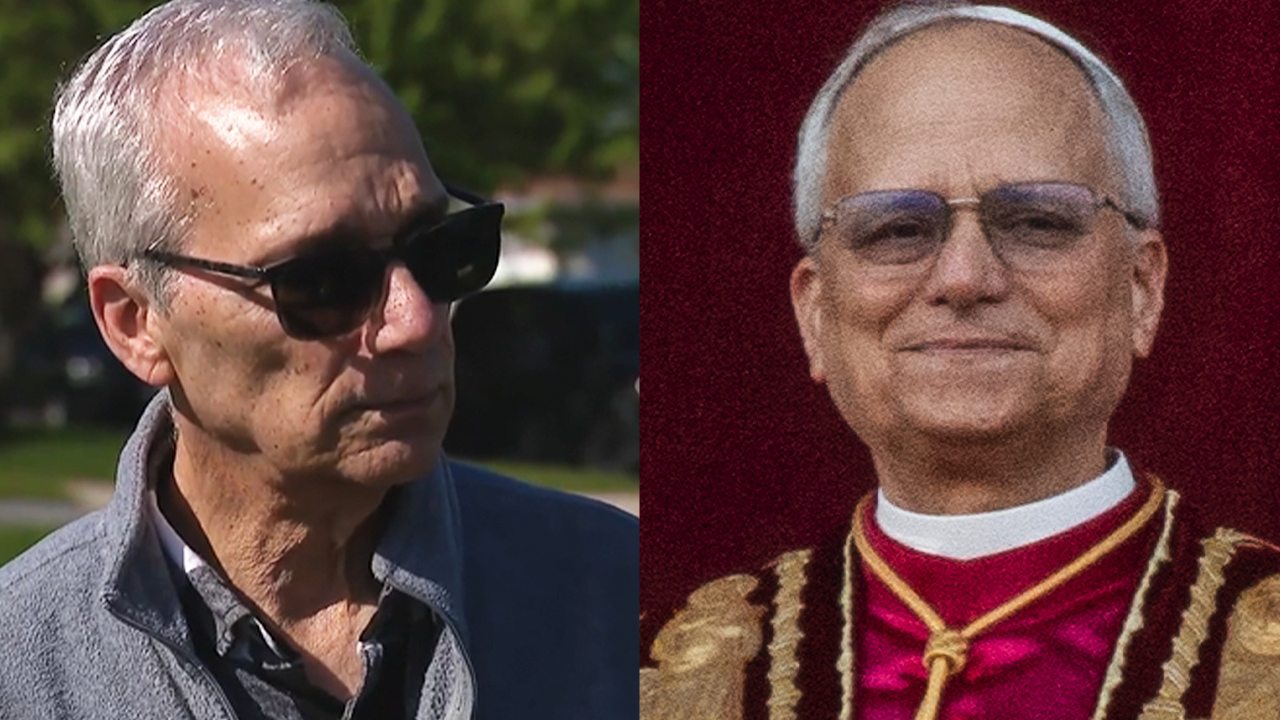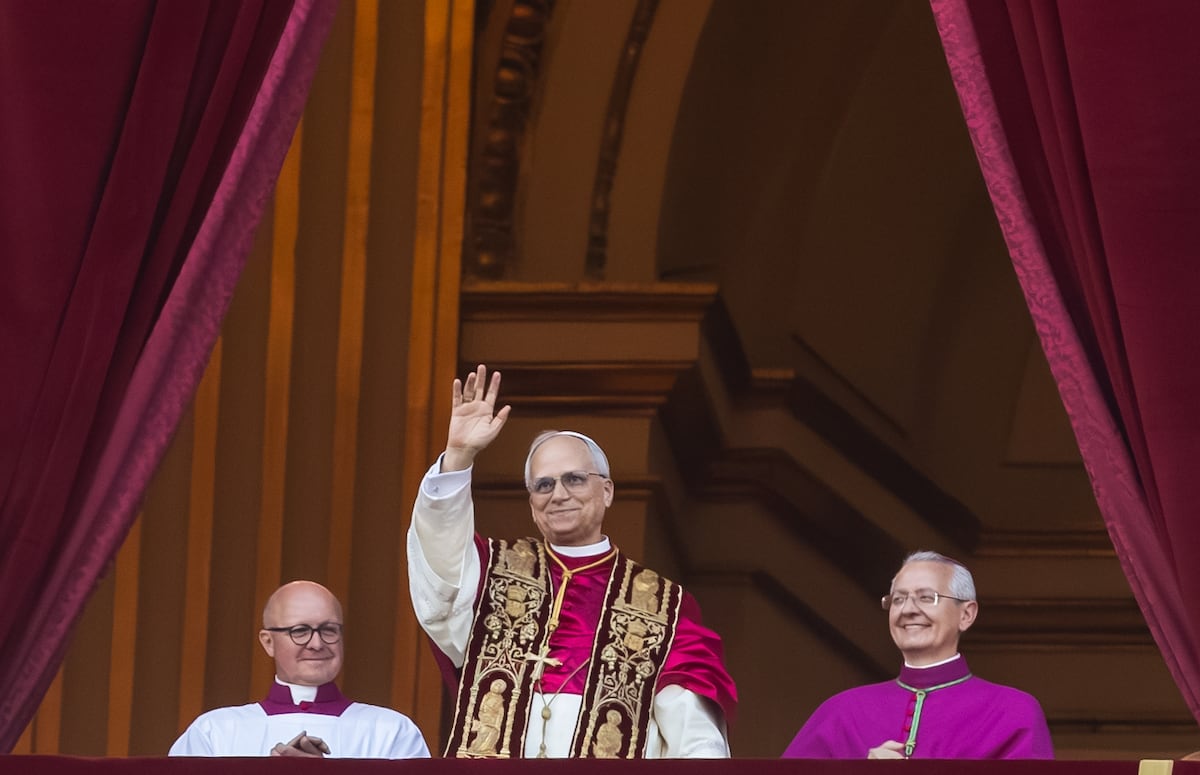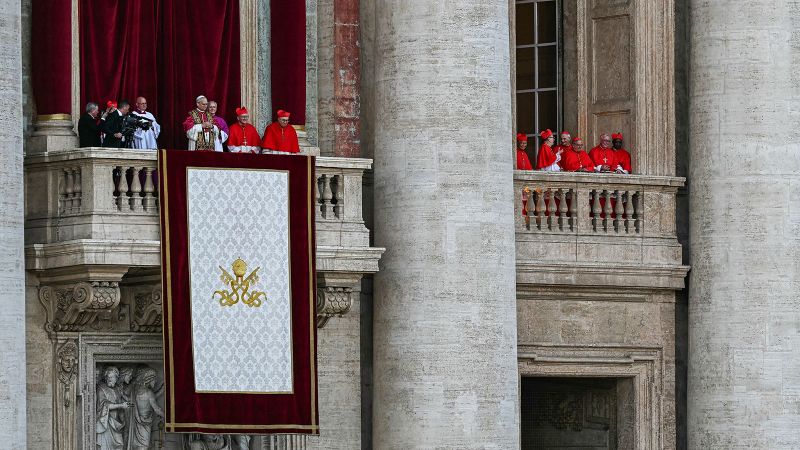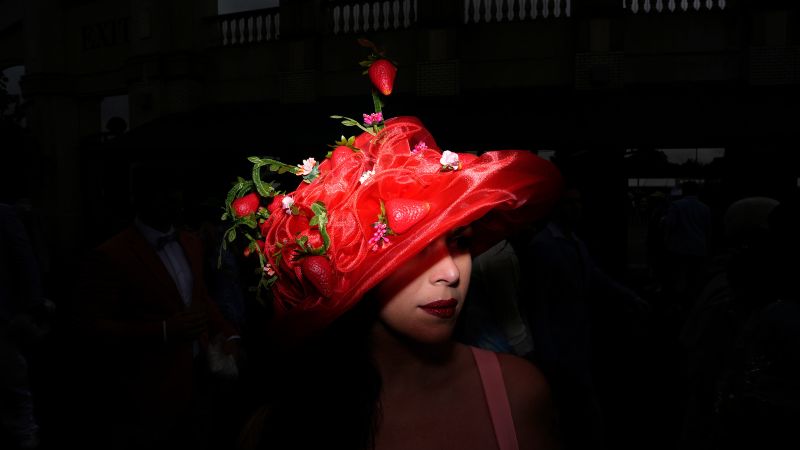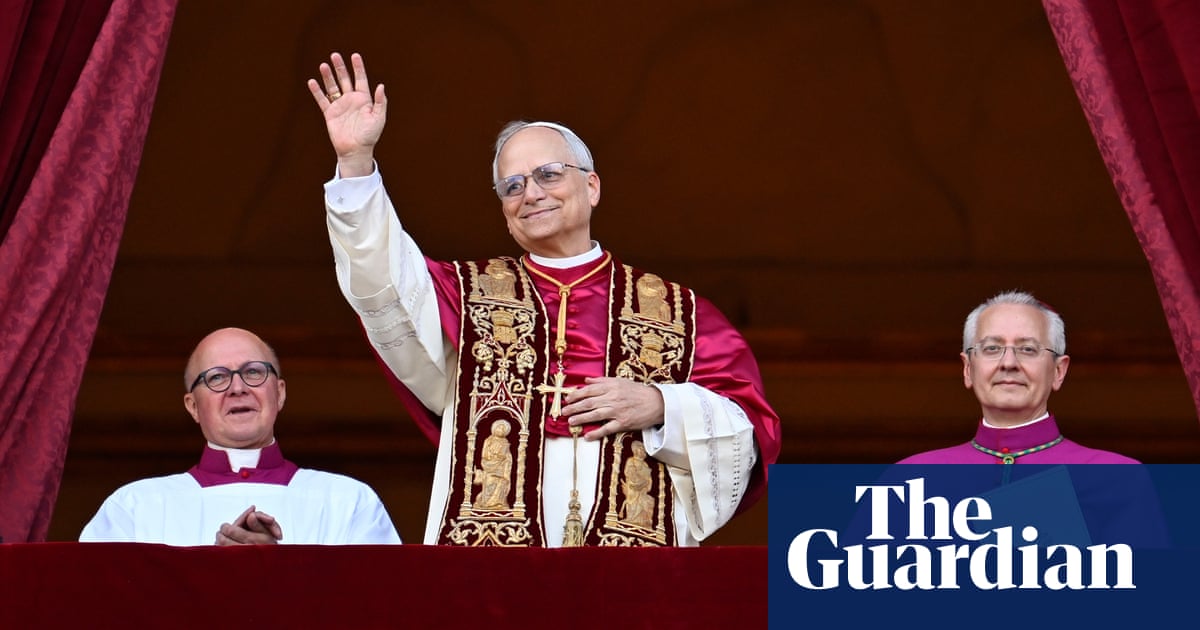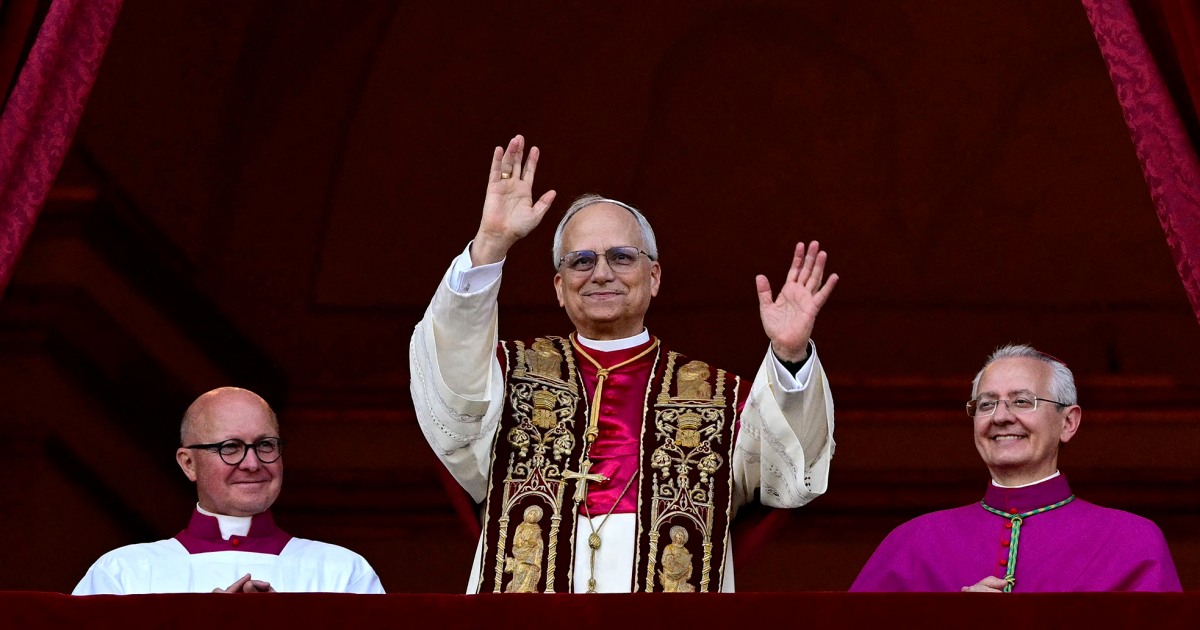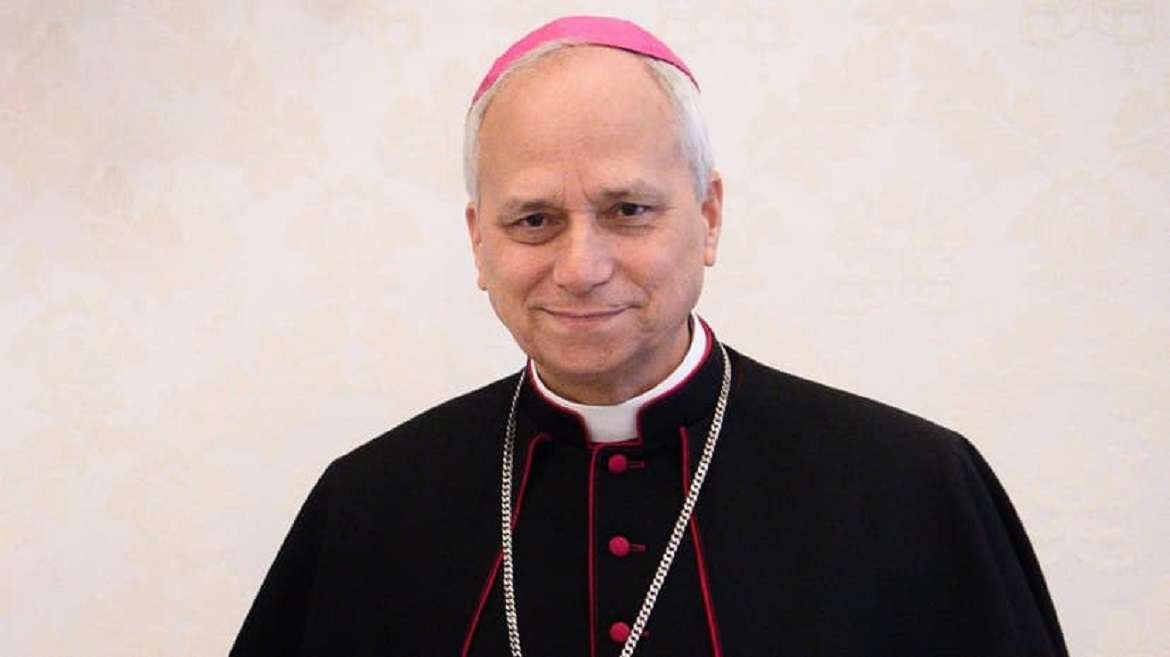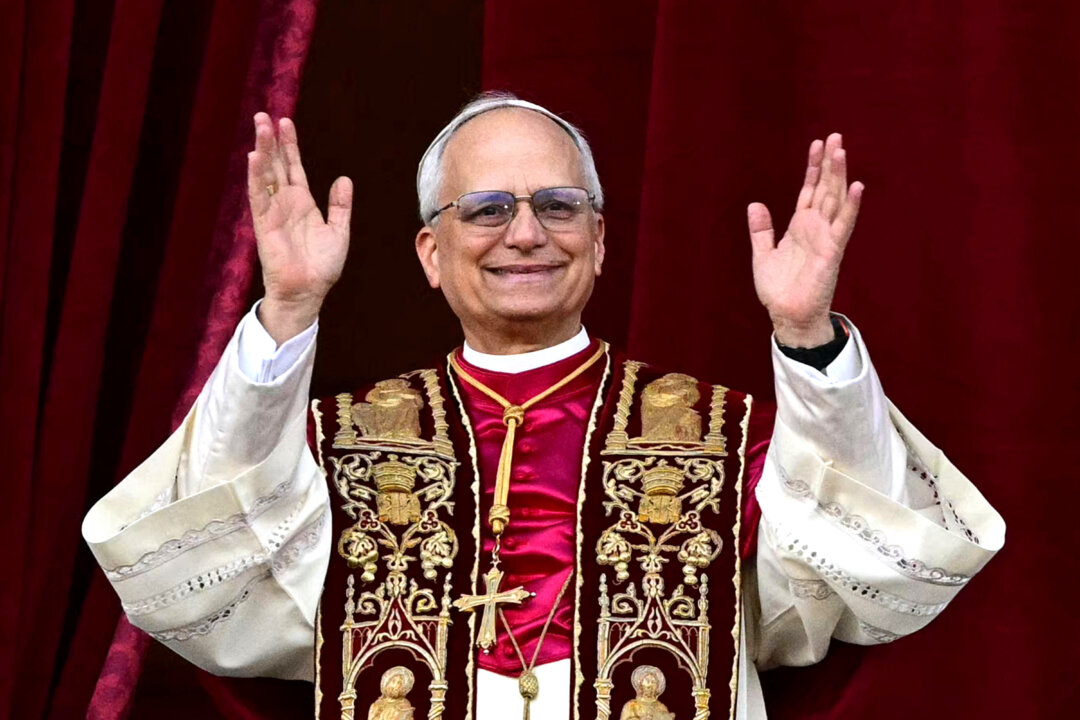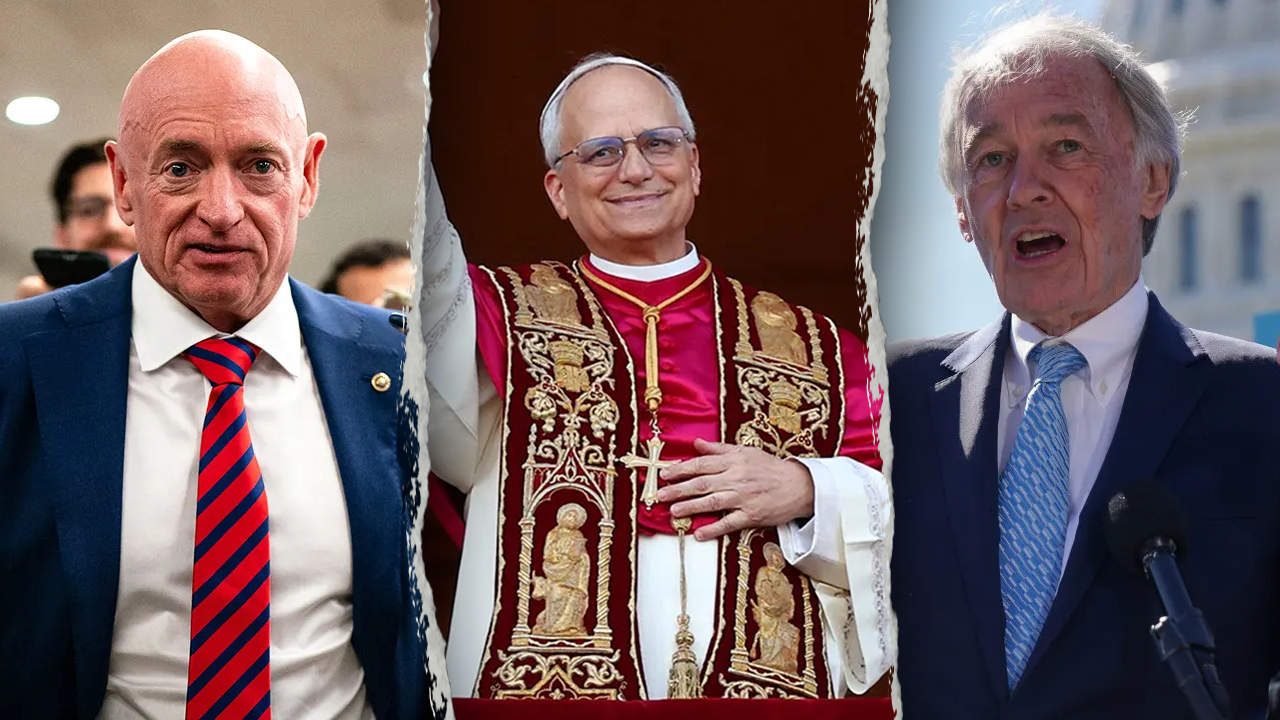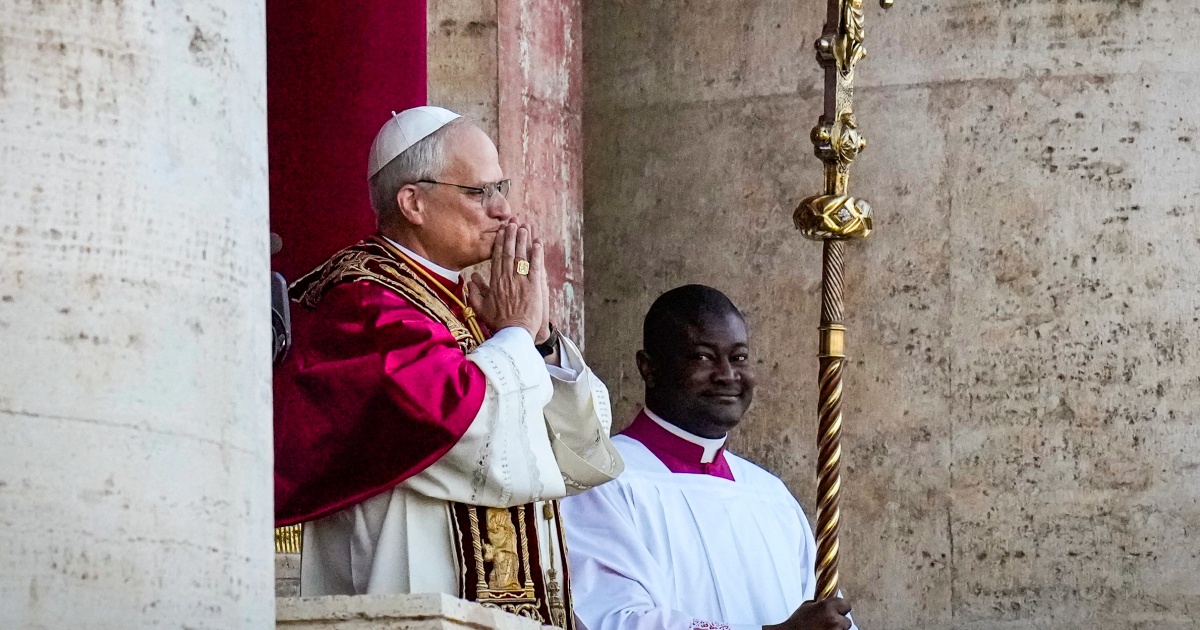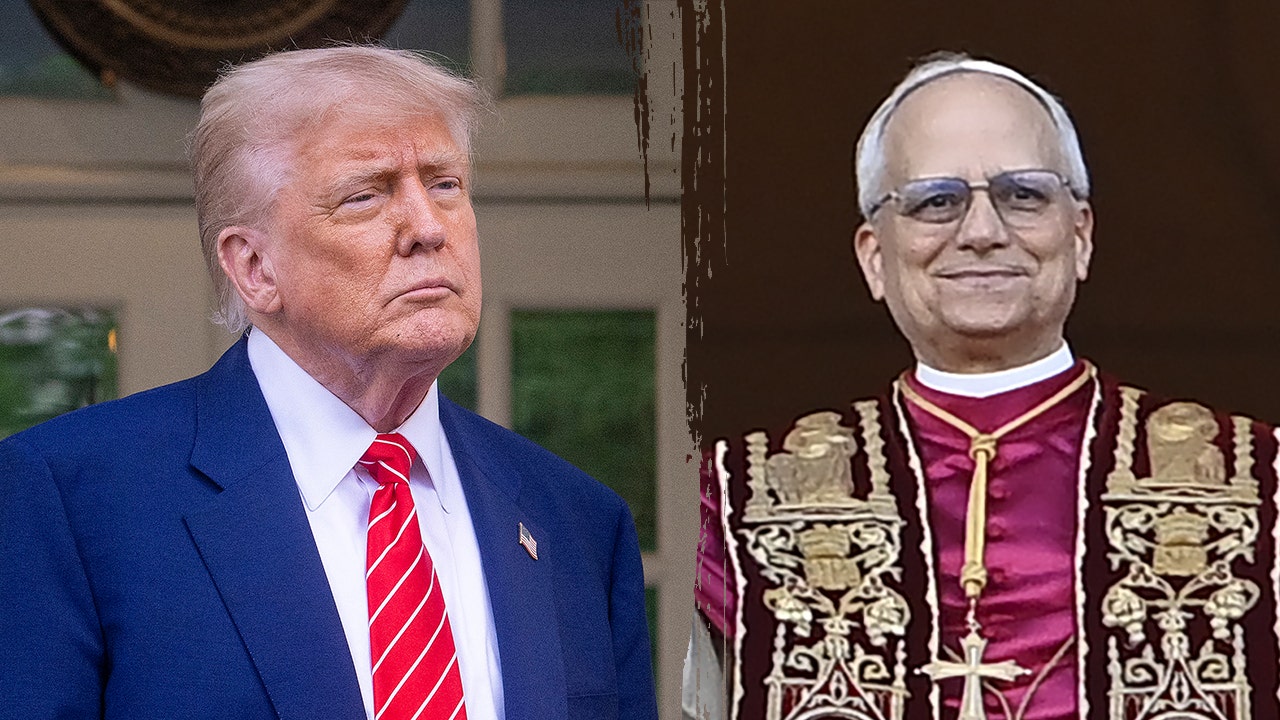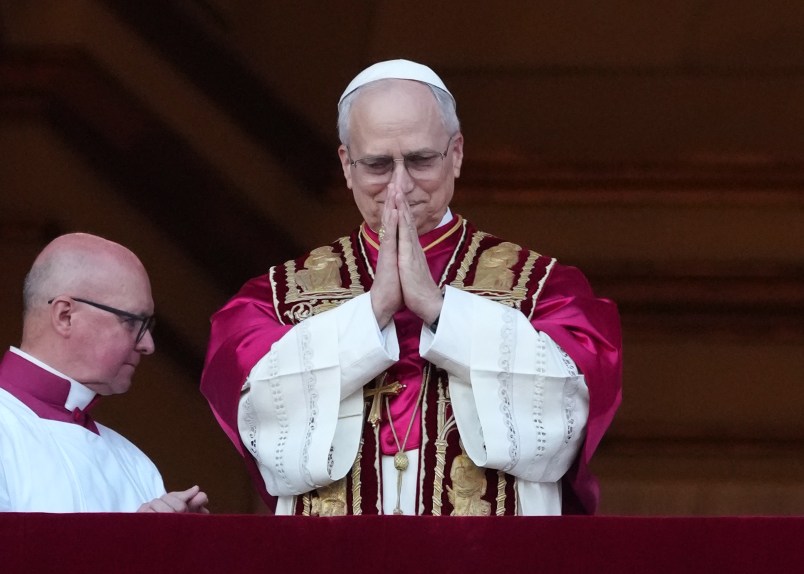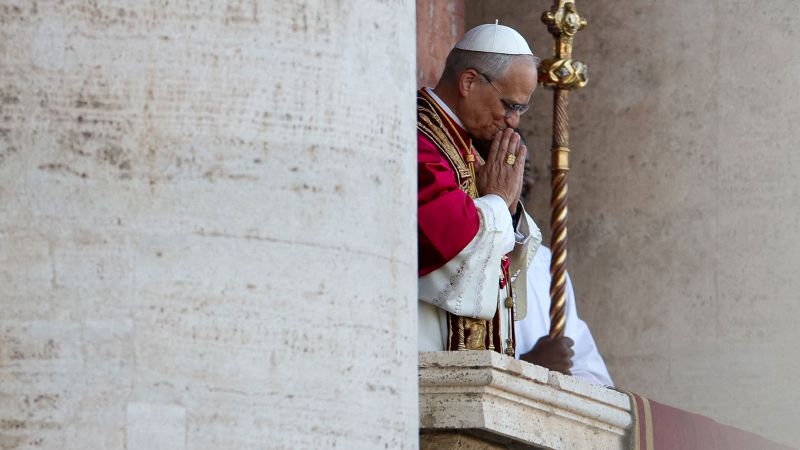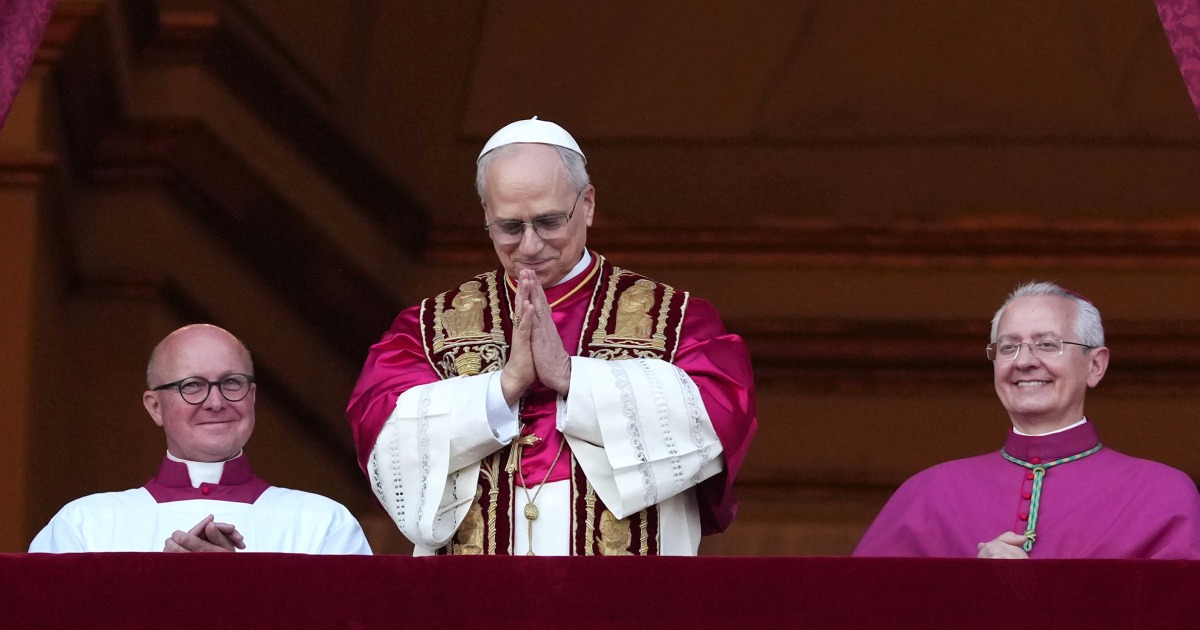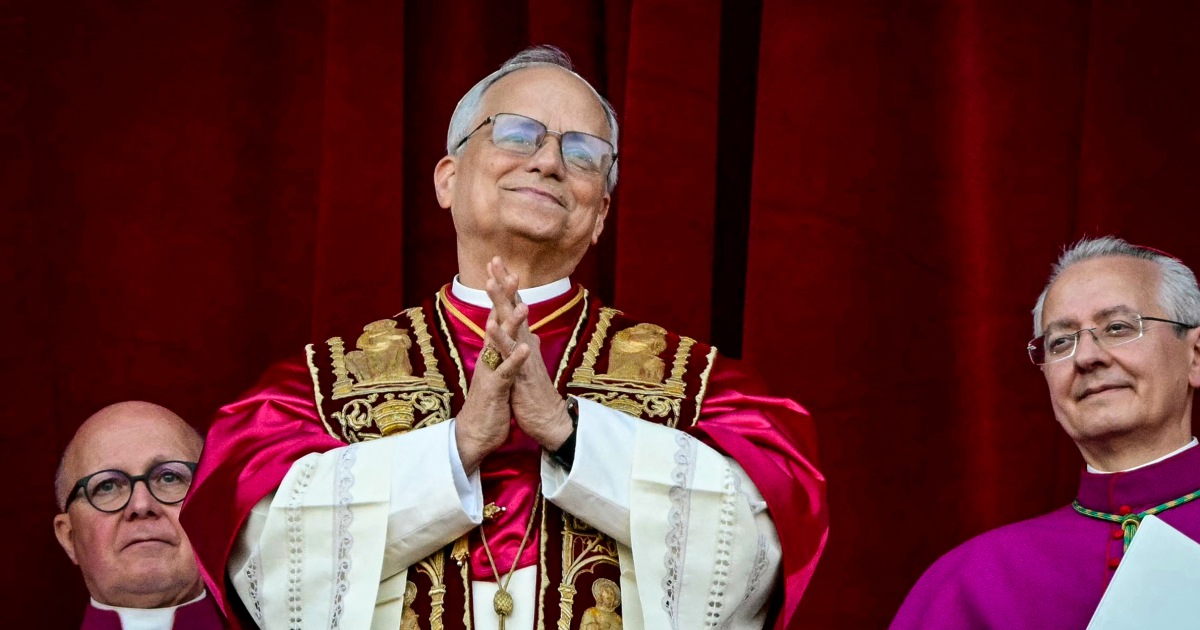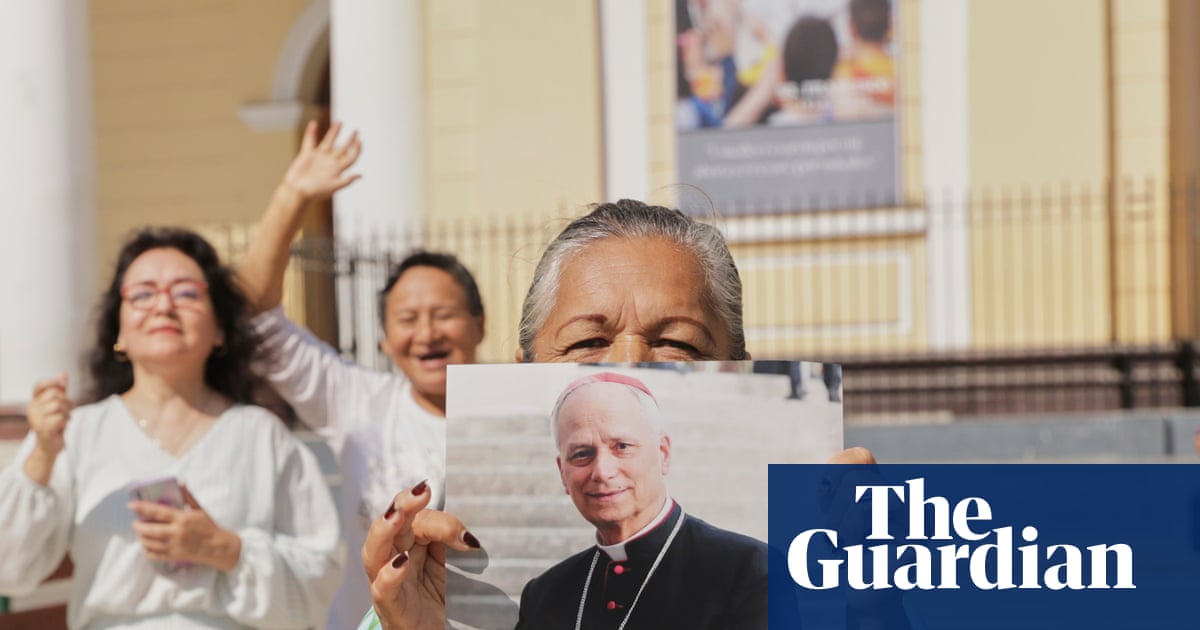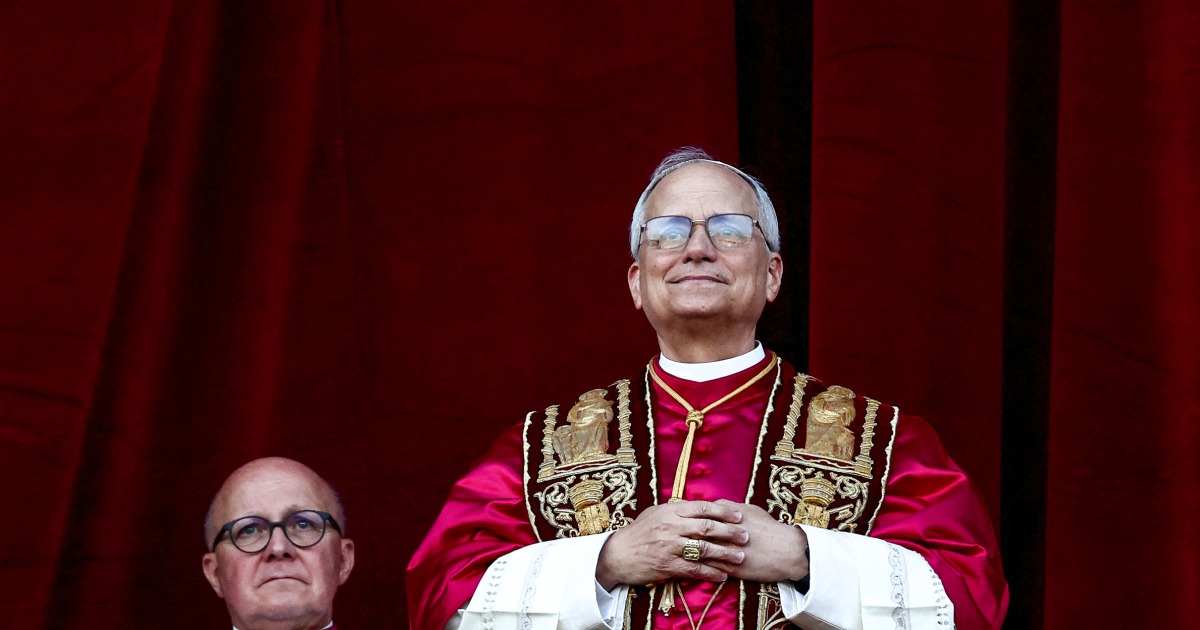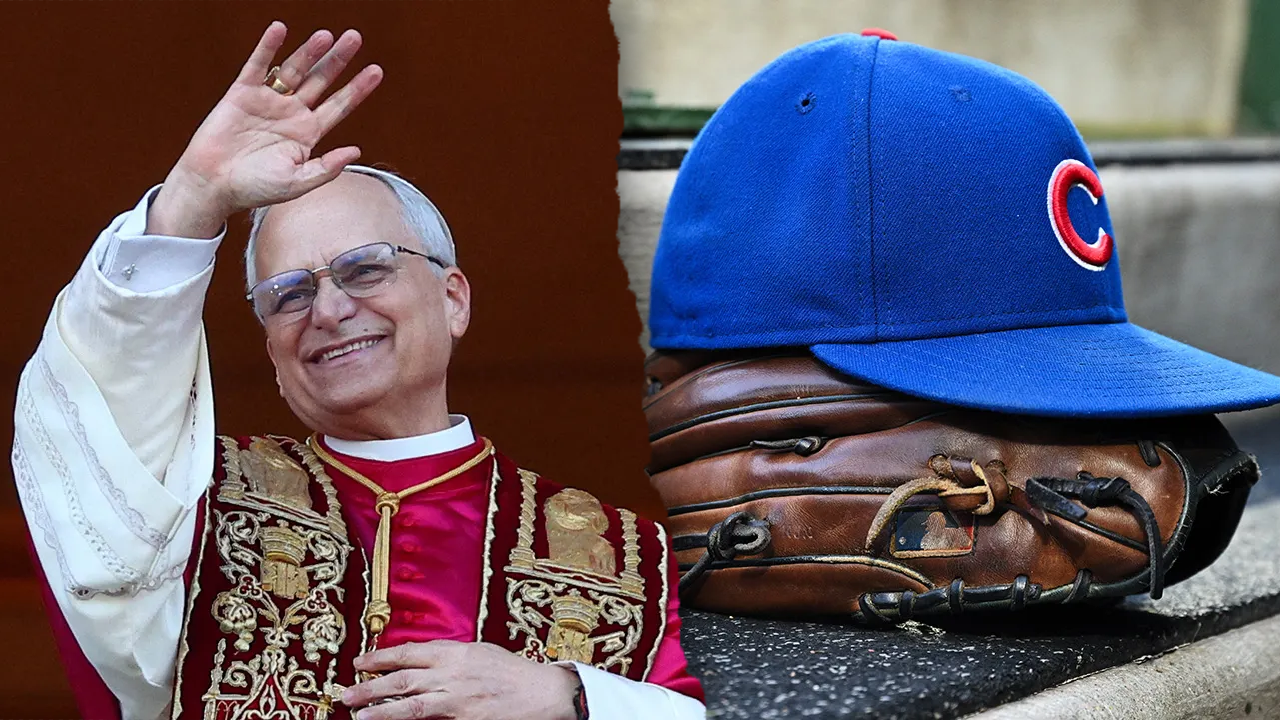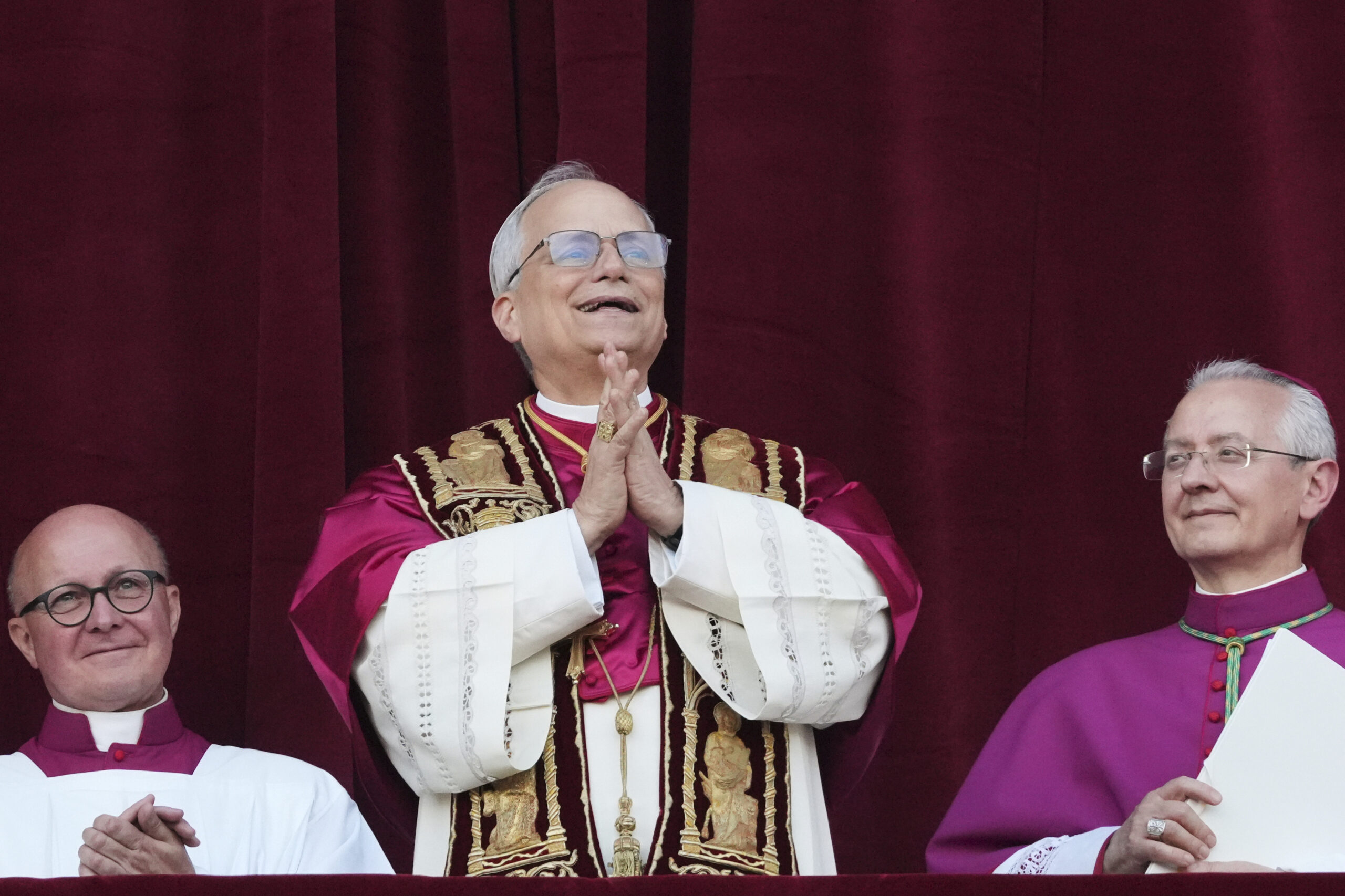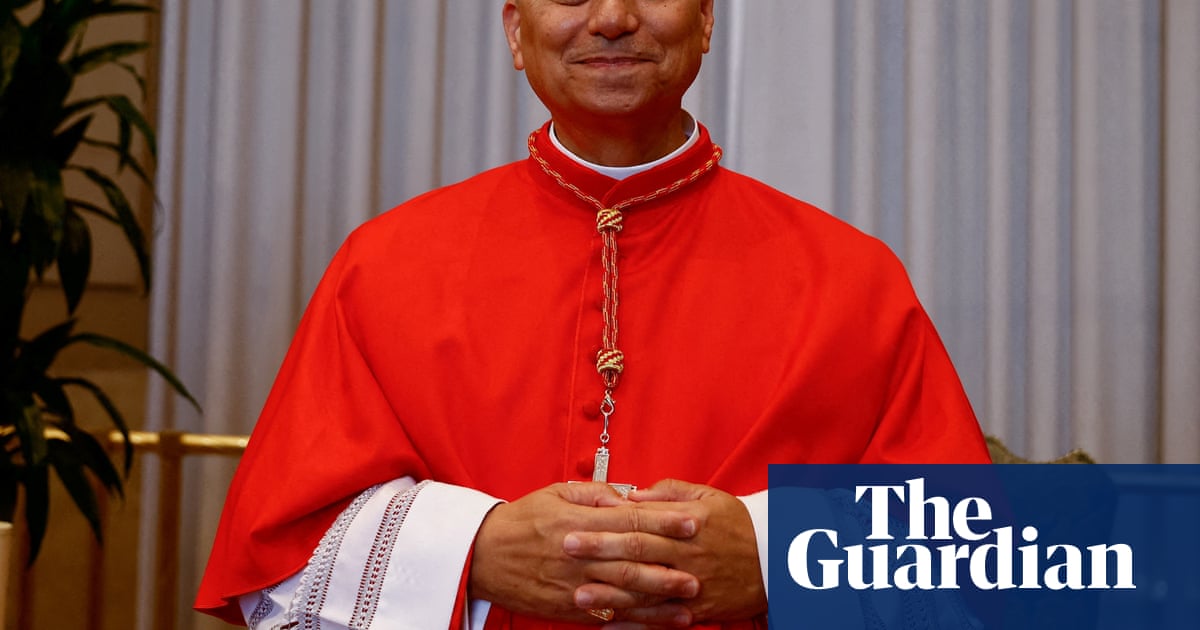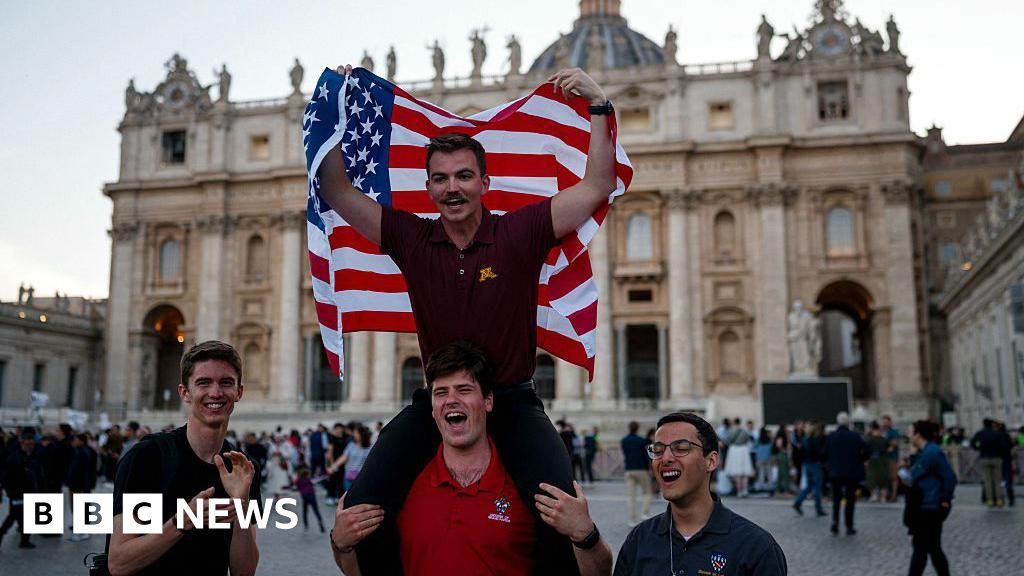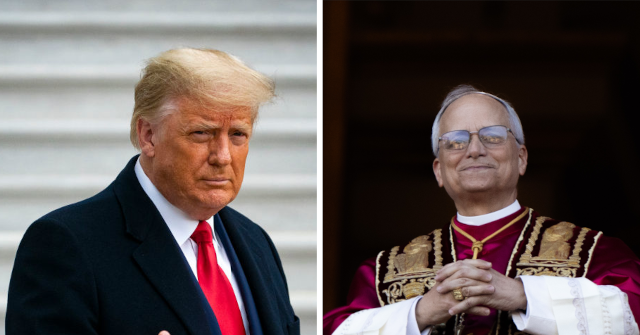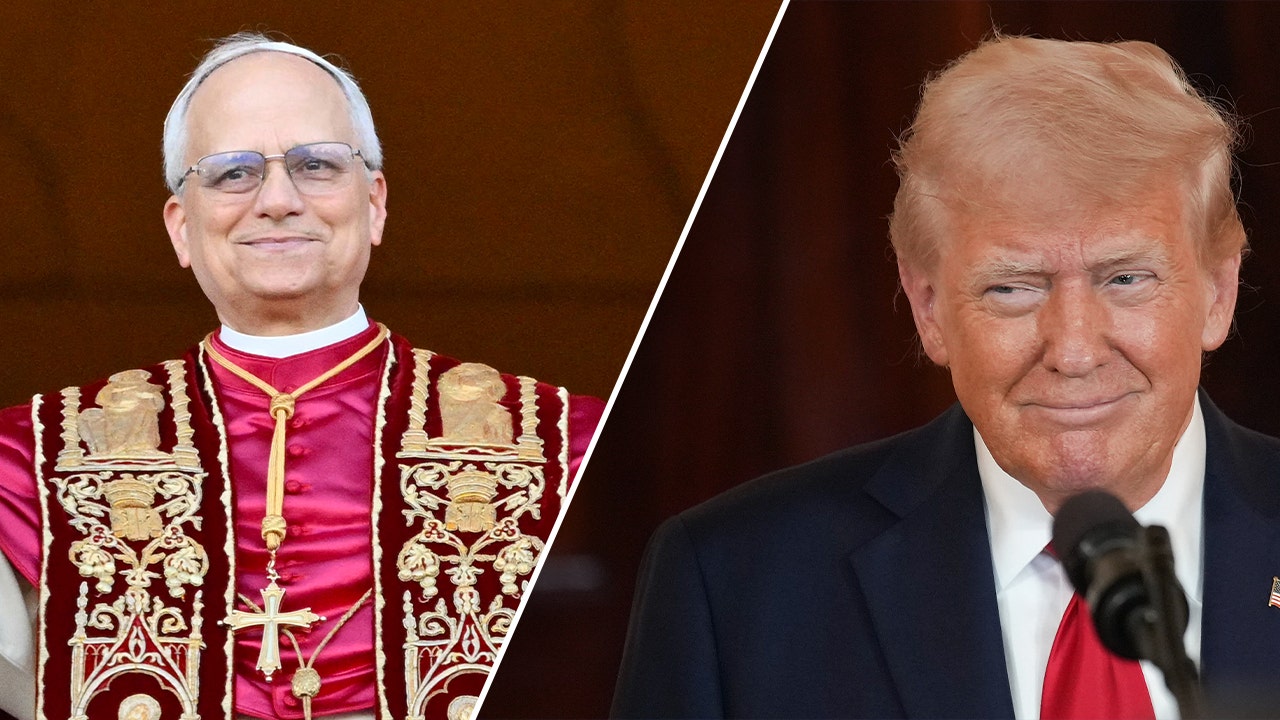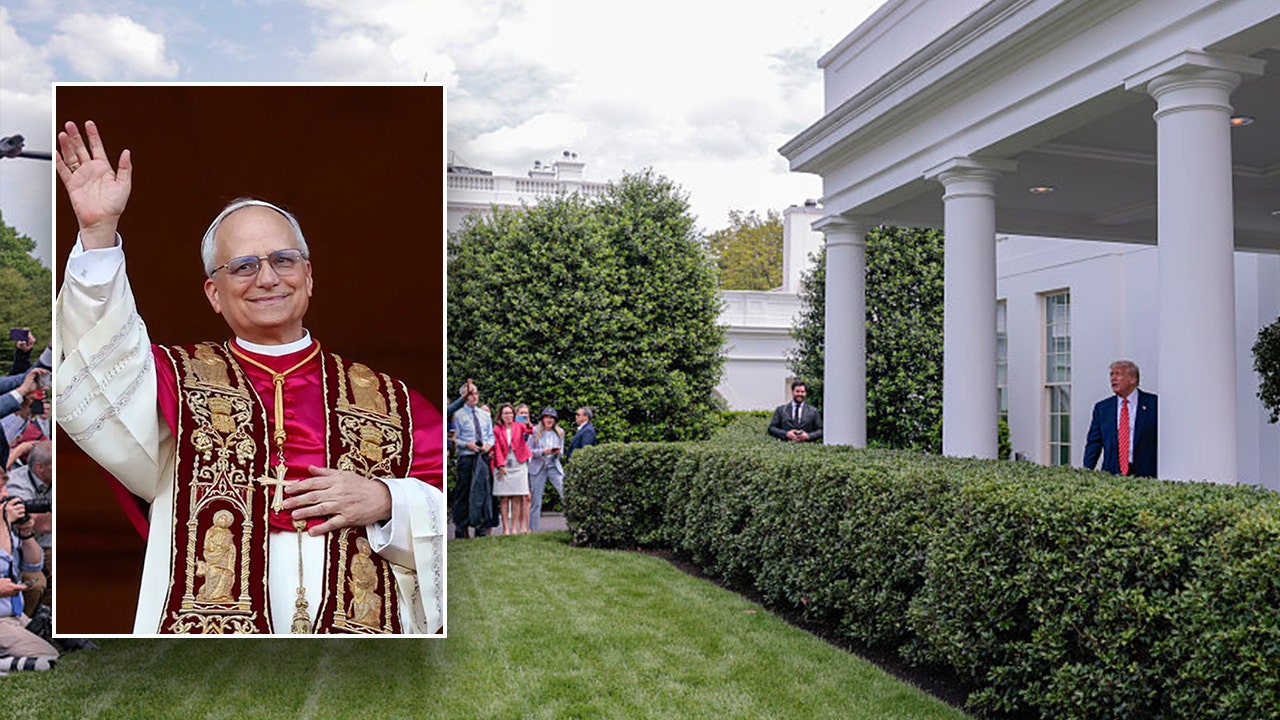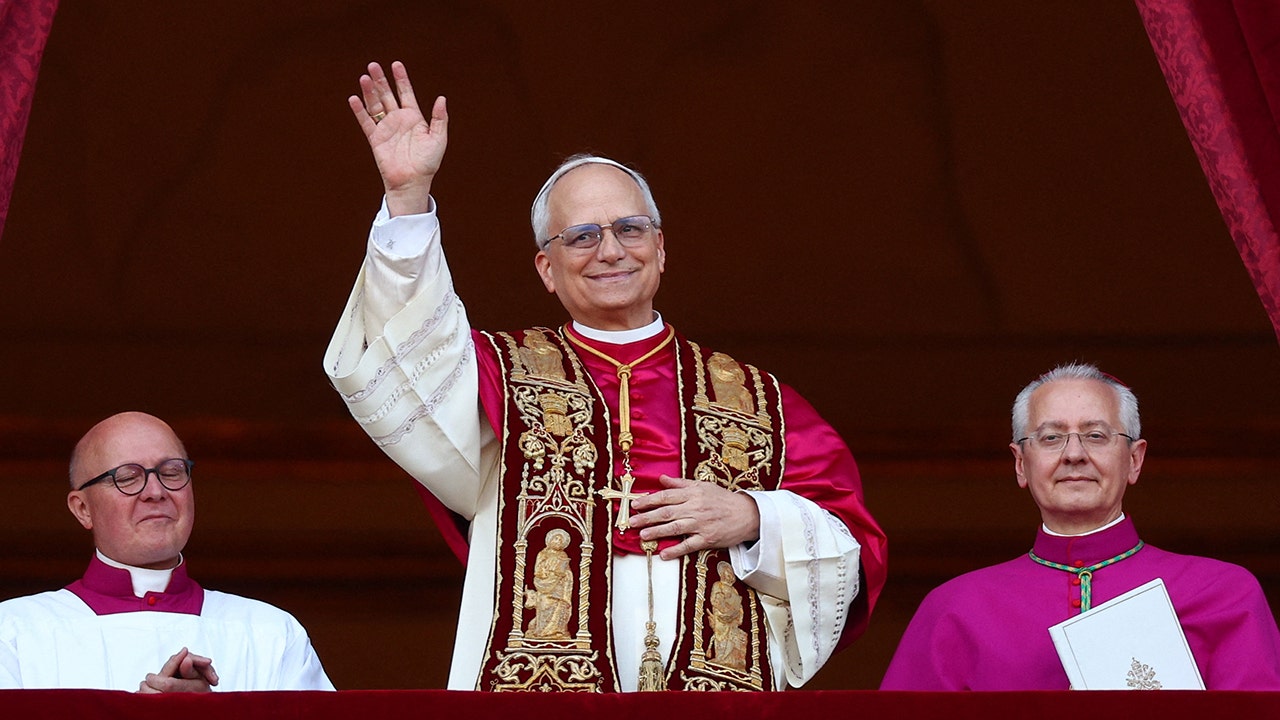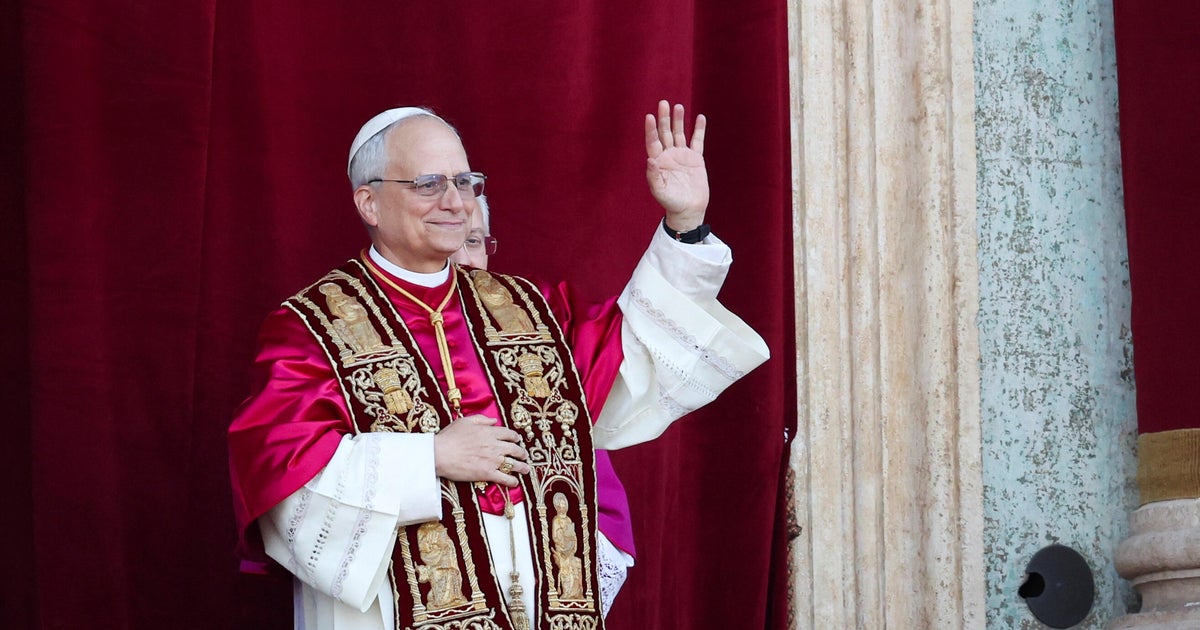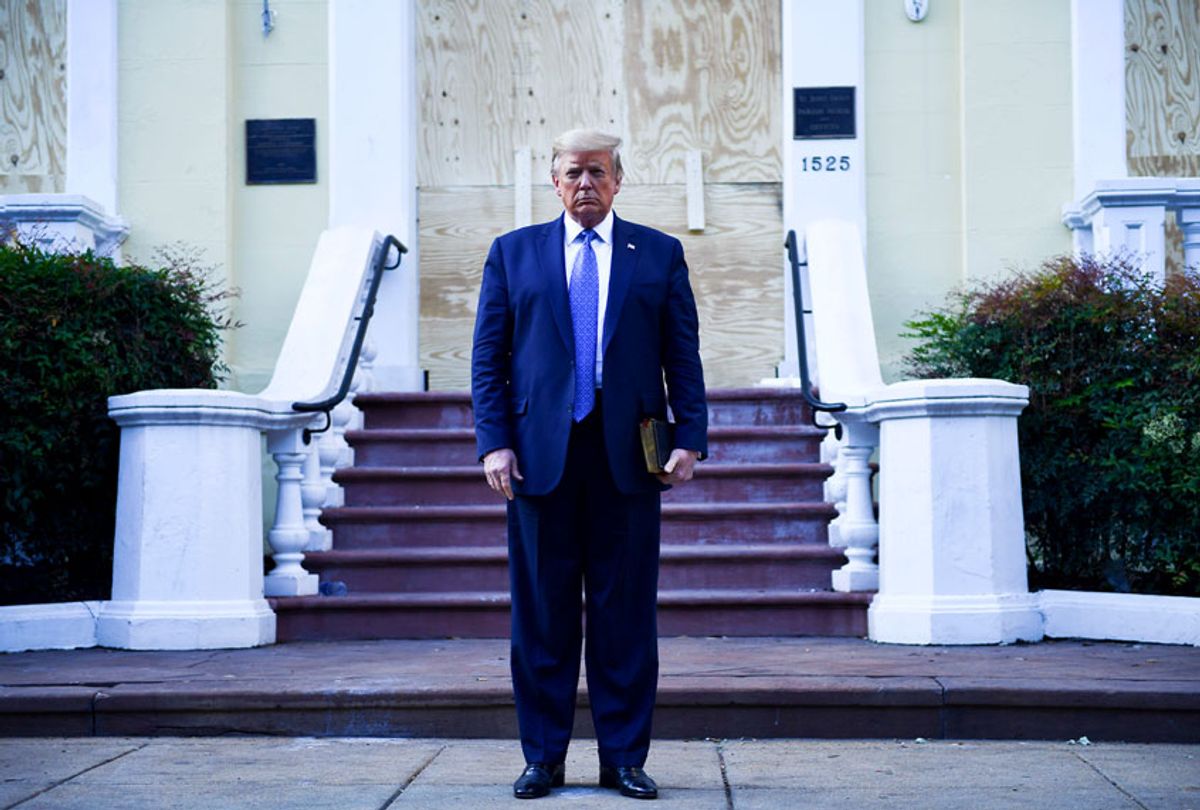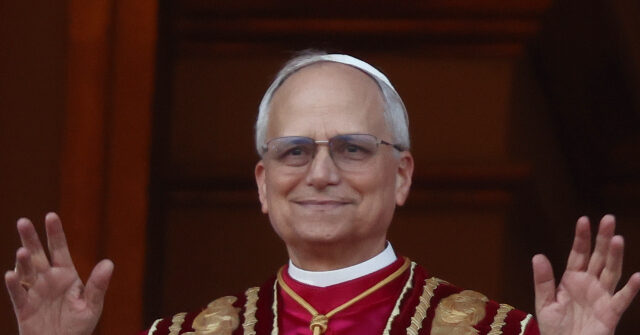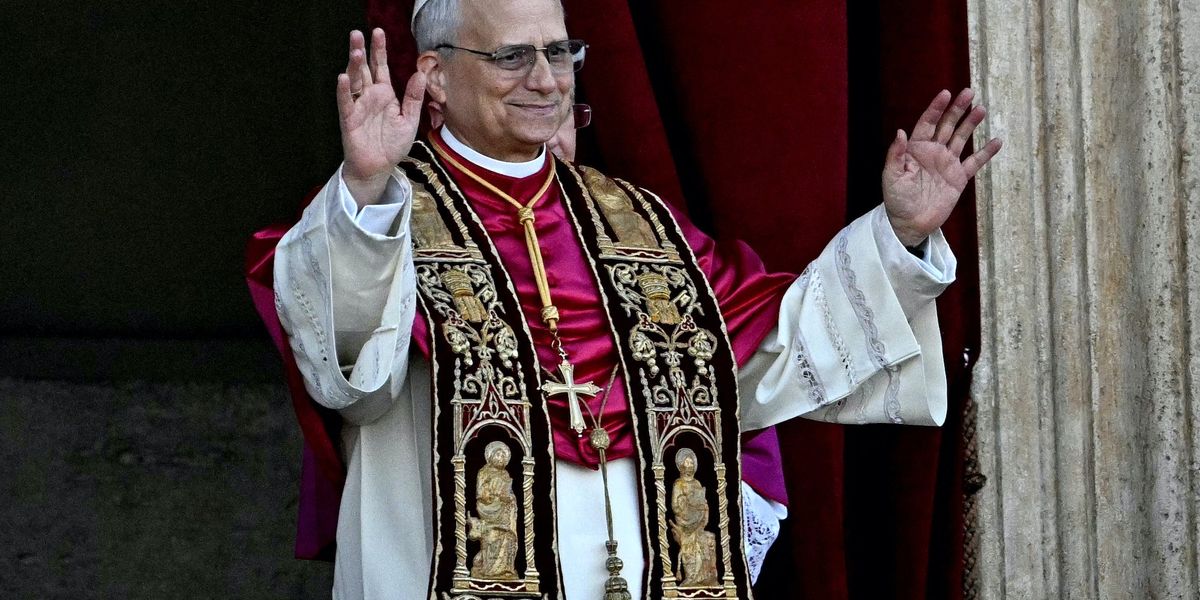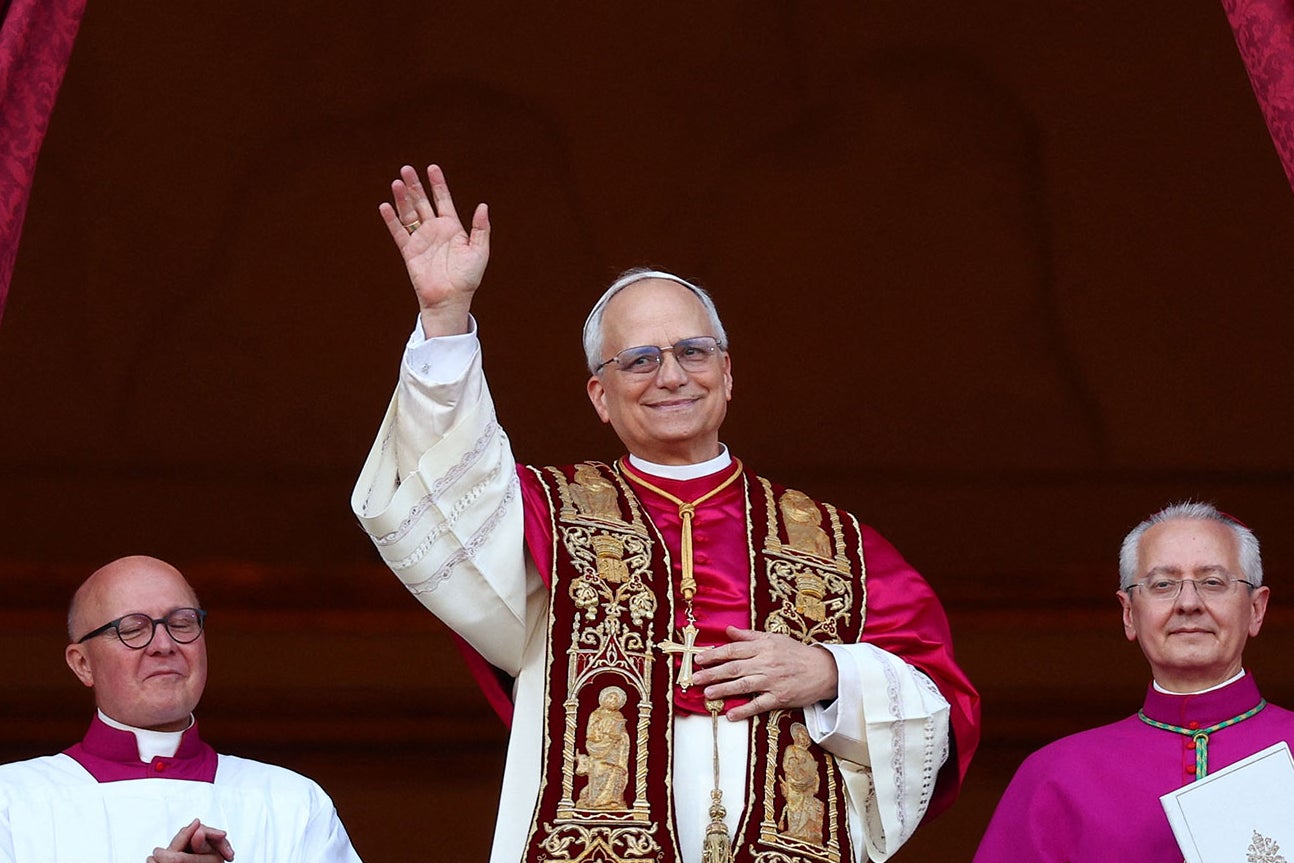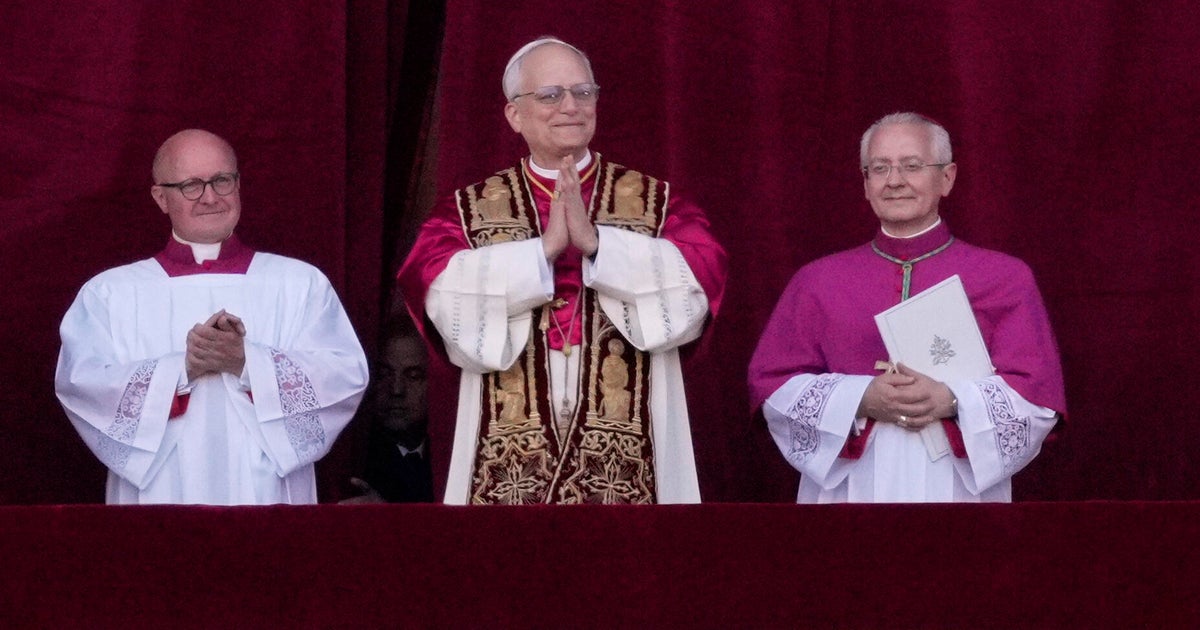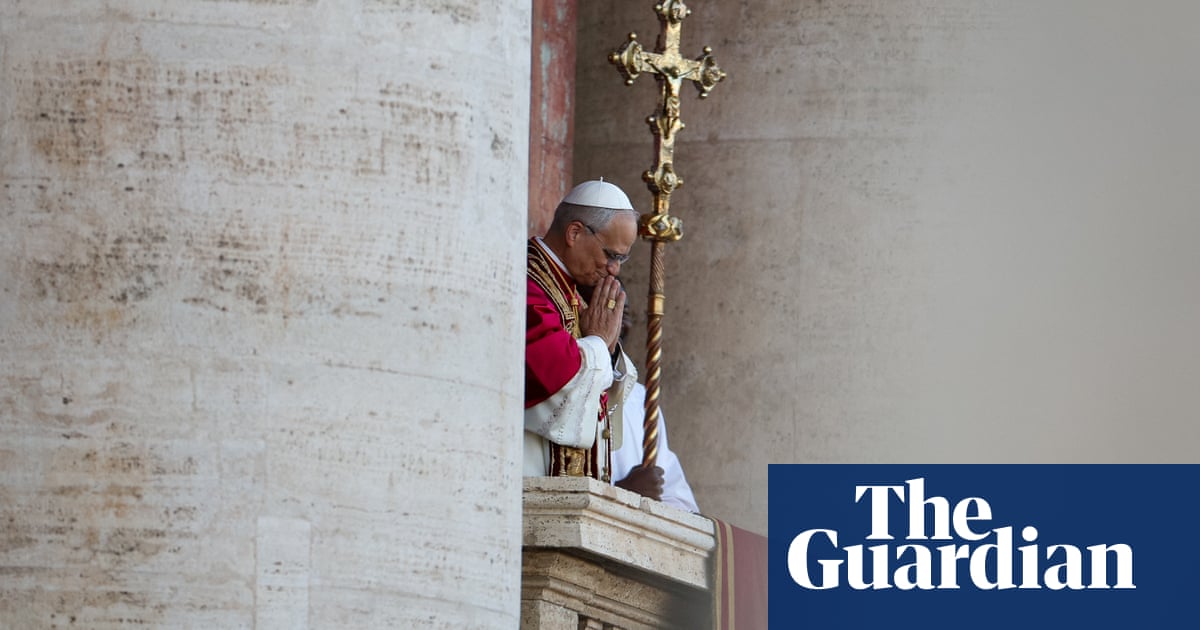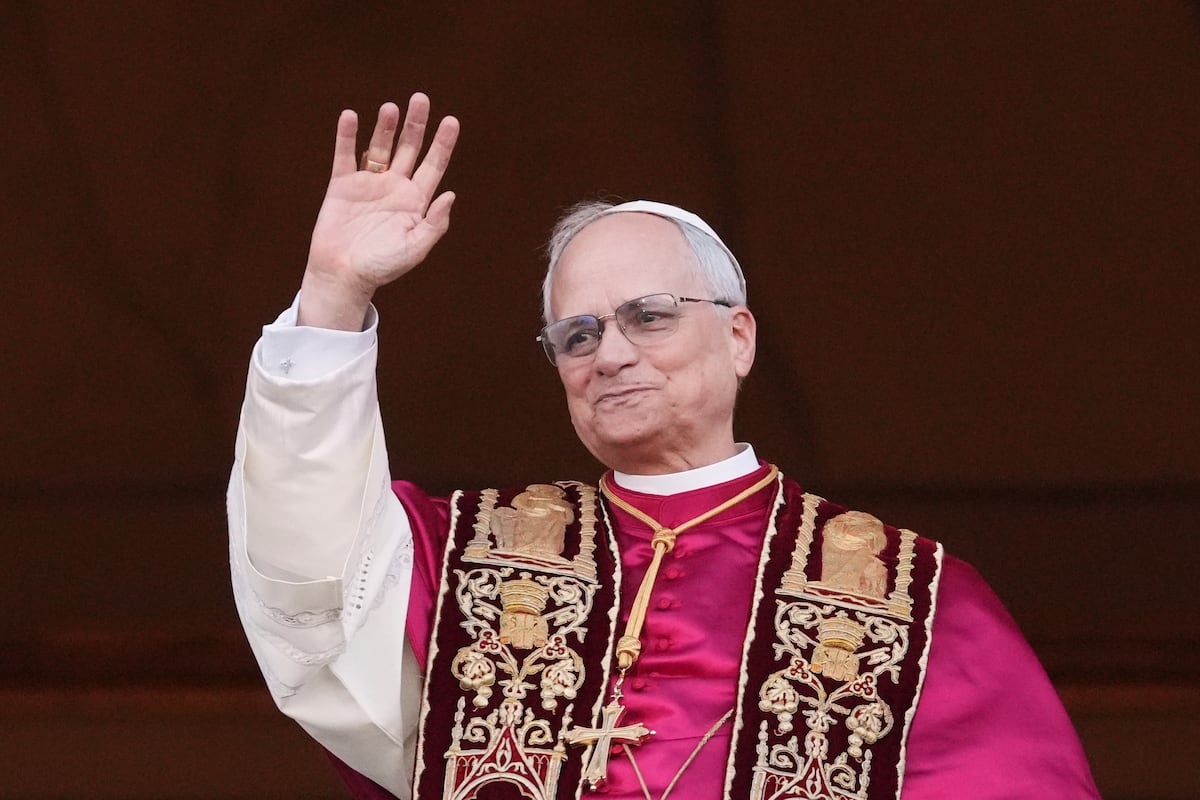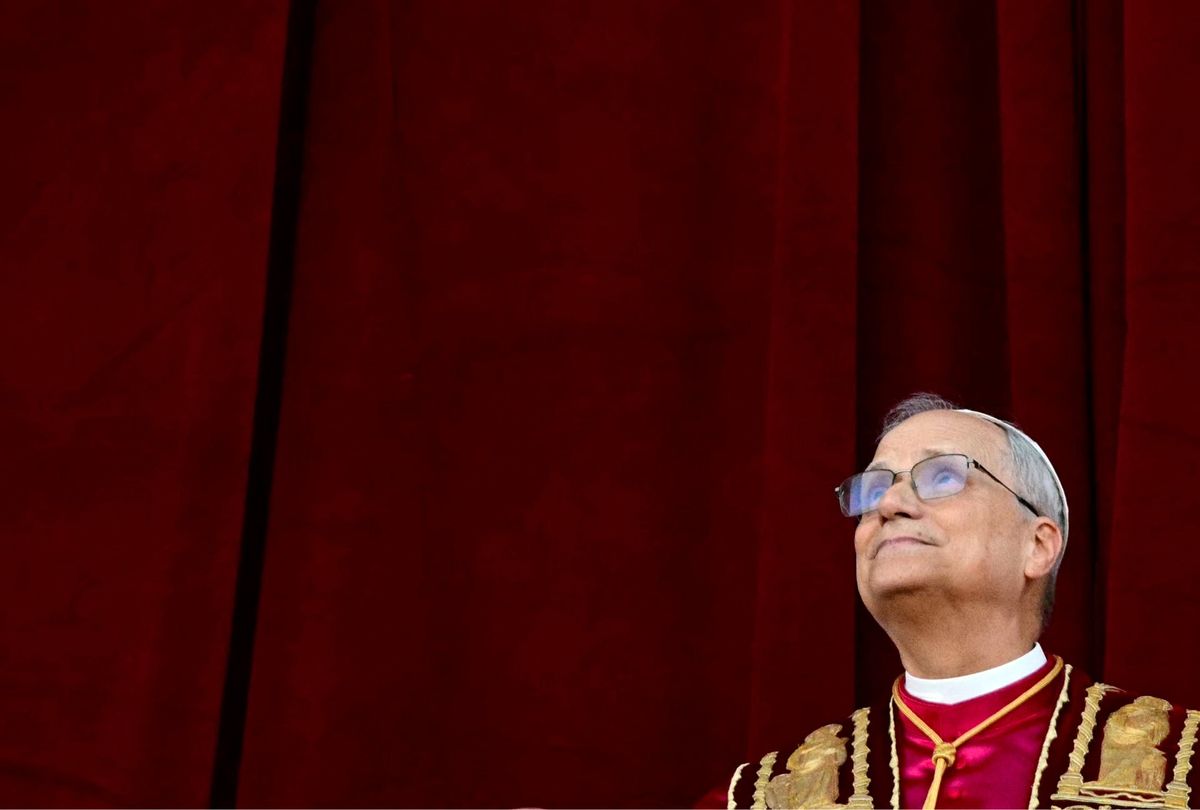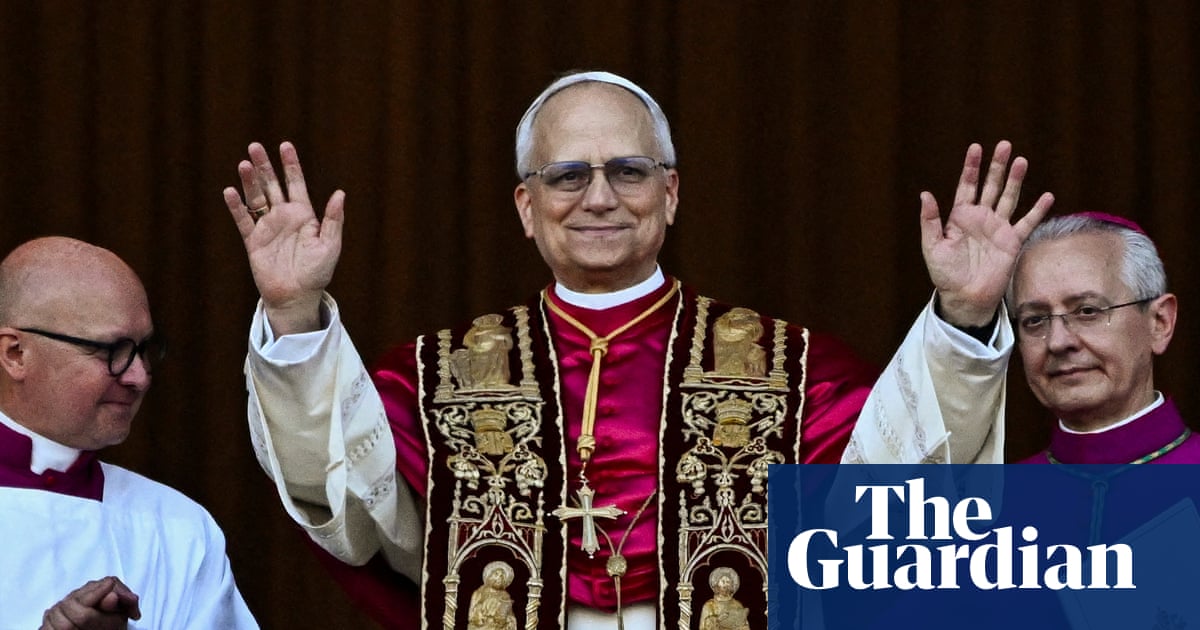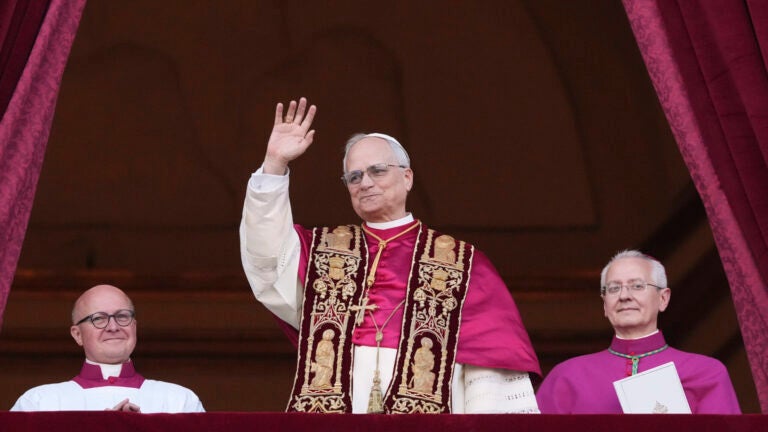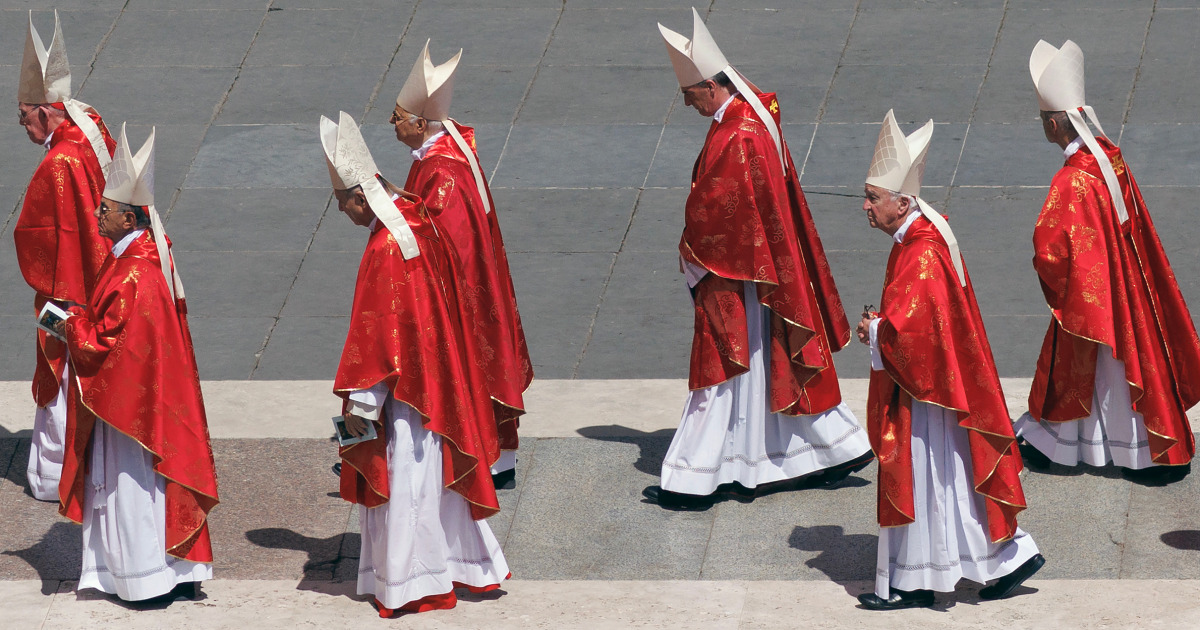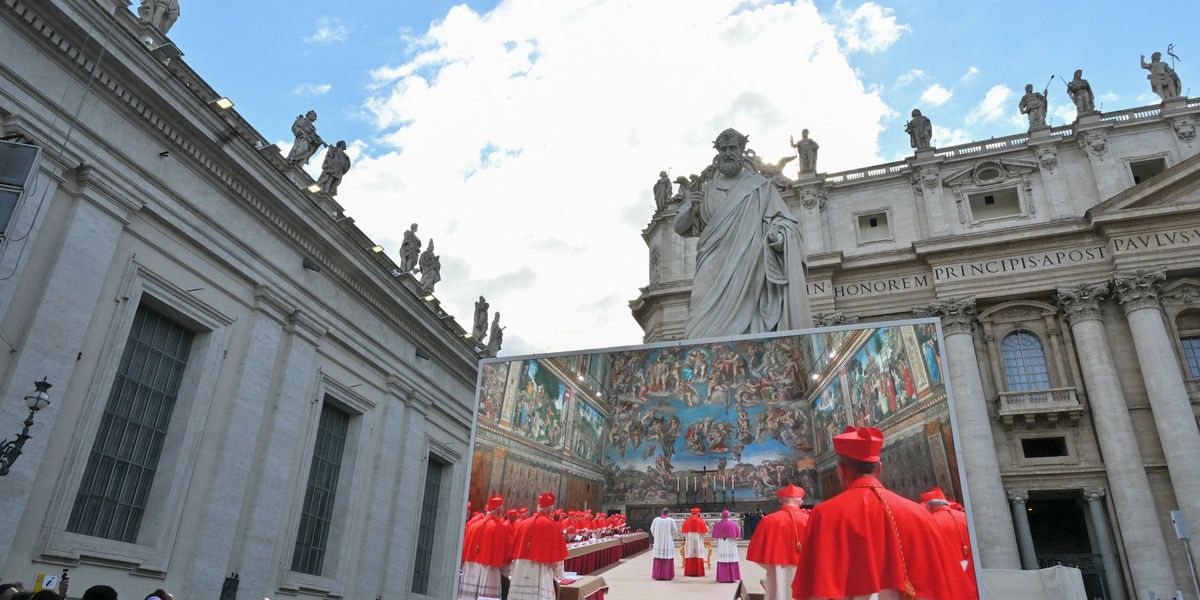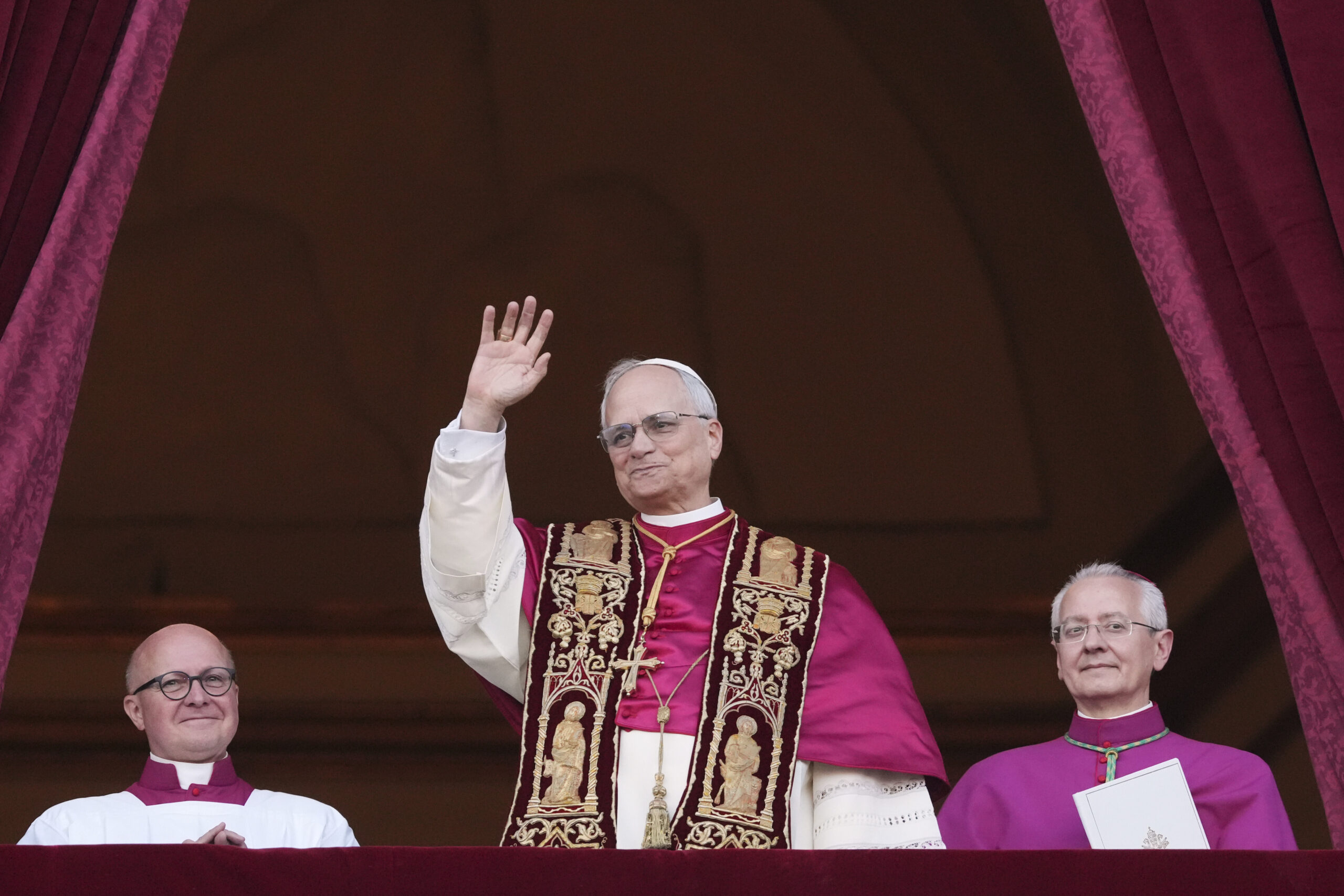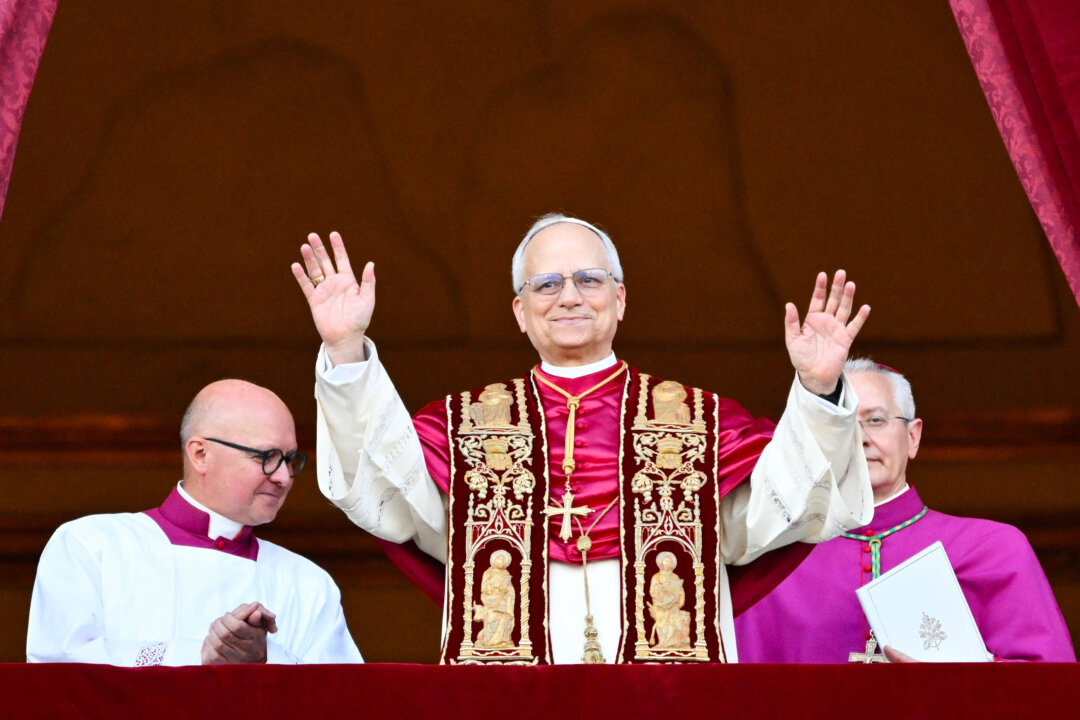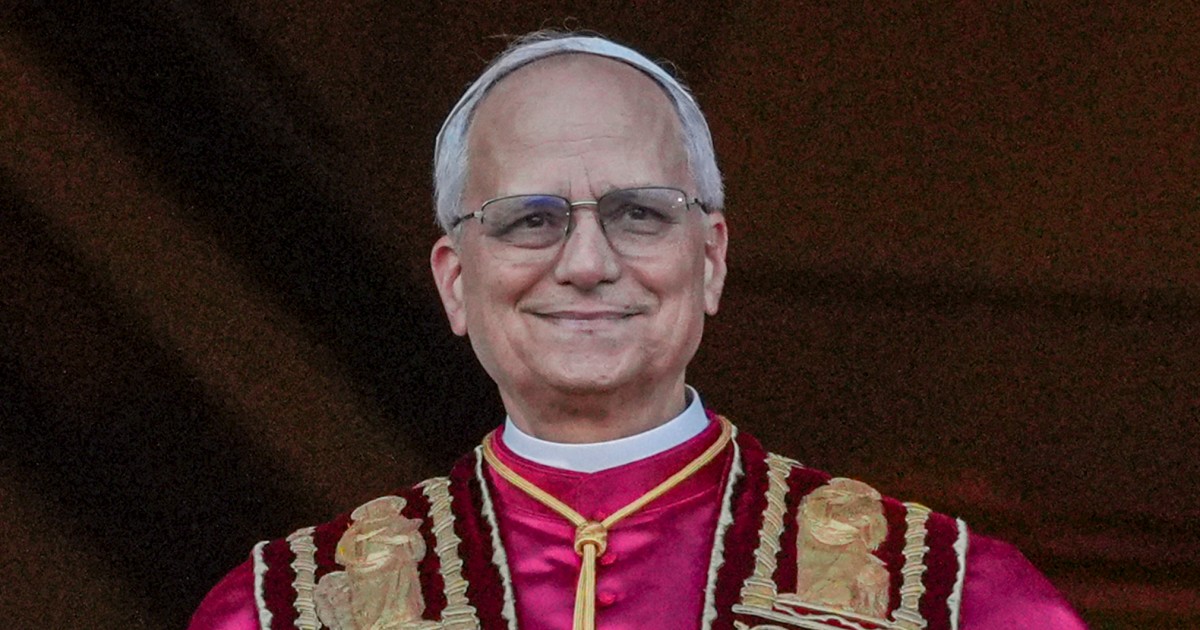Pope Leo XIV Elected as First American Pontiff, Promises Commitment to Social Justice and Climate Action
Cardinal Robert Prevost has been elected Pope Leo XIV, emphasizing peace, social issues, and a commitment to climate action.

Pope Leo XIV: What to know about Chicago-born Robert Prevost
Chicago Tribune
'DA POPE!' Leo XIV's Chicago roots unleash spate of holy humor
Associated Press
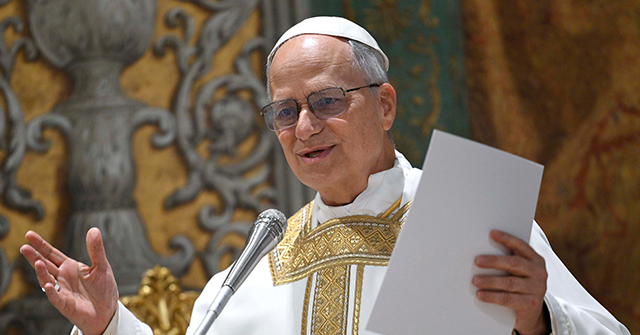
Read Pope Leo XIV's First Homily as Pope
Breitbart News

Pope Leo XIV holds first mass
Washington Examiner
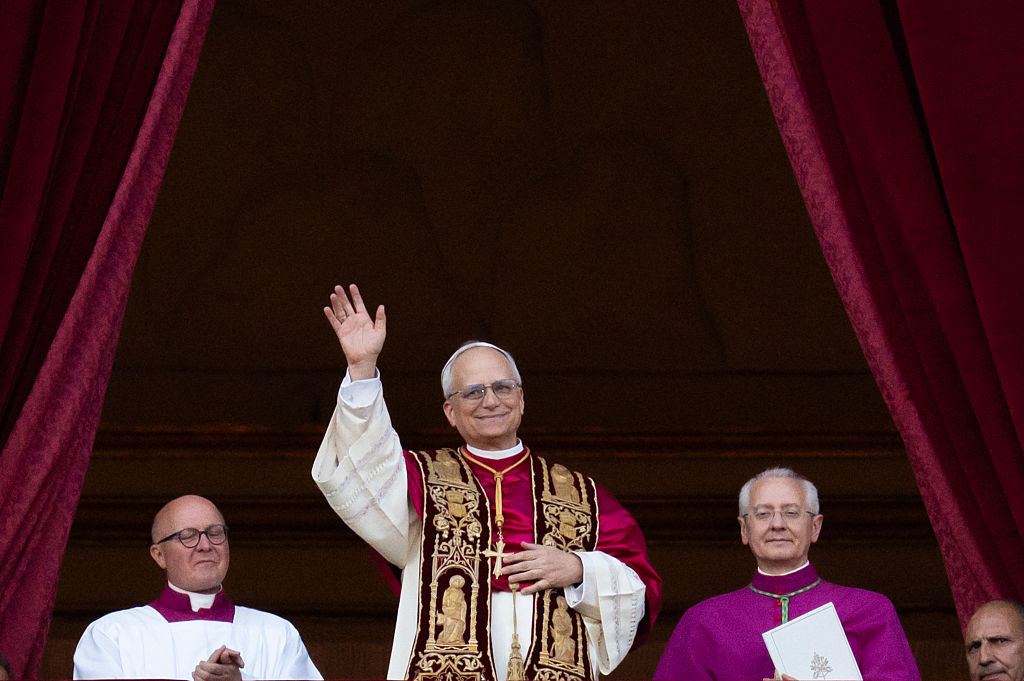
From the Windy City to the Chair of St. Peter
The Dispatch
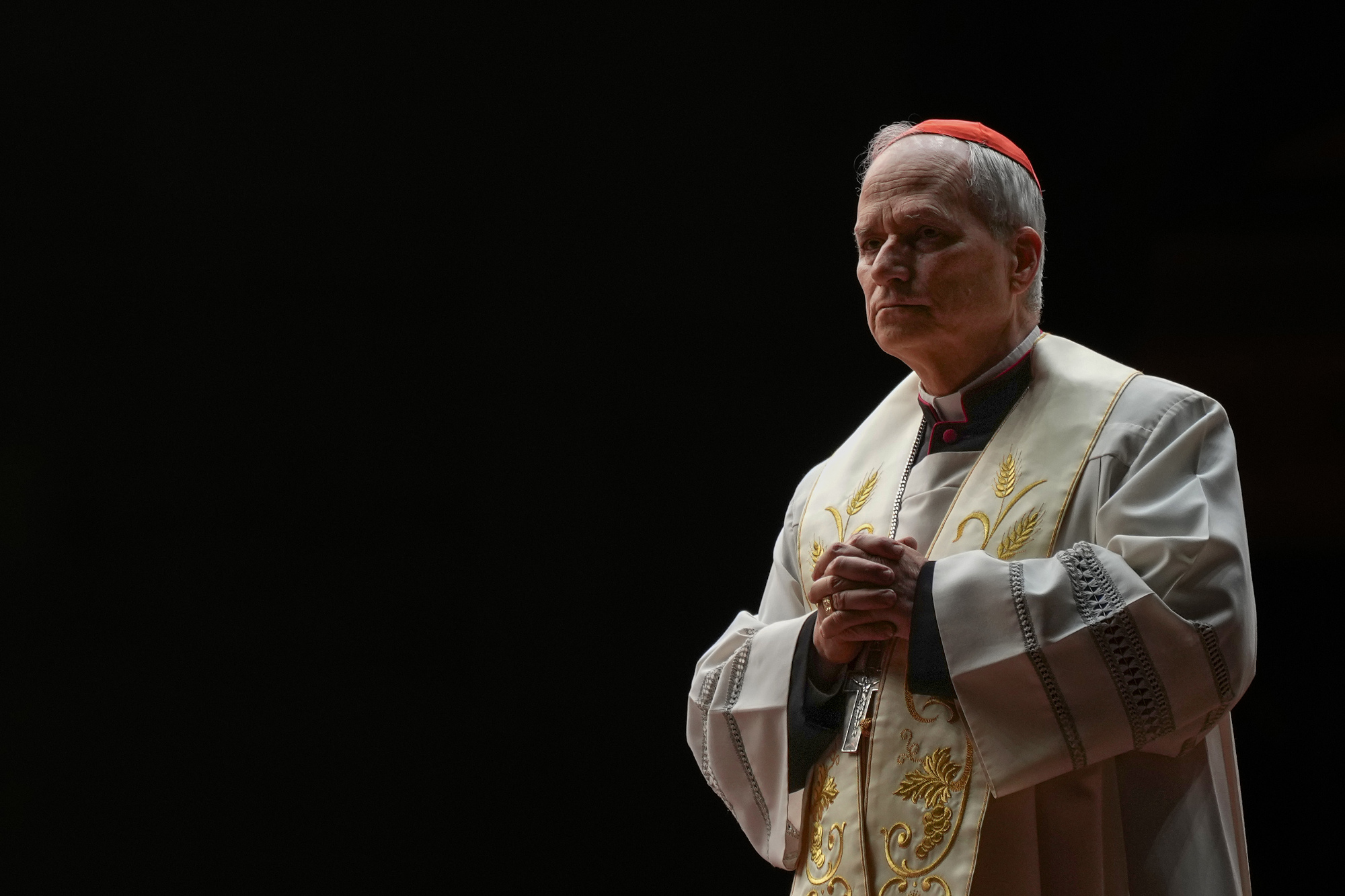
Can Pope Leo fix the mess left by Francis?
The Spectator World

Gaskin: All Christians should pray for Pope Leo XIV
Boston Herald

Prevost brothers celebrate their younger sibling’s ascension to pope
Washington Examiner
Pope Leo XIV addresses cardinals in English at his first Mass
Associated Press

Seven Things to Know About the American Pope
The Bulwark

Stunning: An American Pope
The American Spectator

Credit the Chicago nuns for Robert Prevost's rise to pope
Chicago Sun-Times
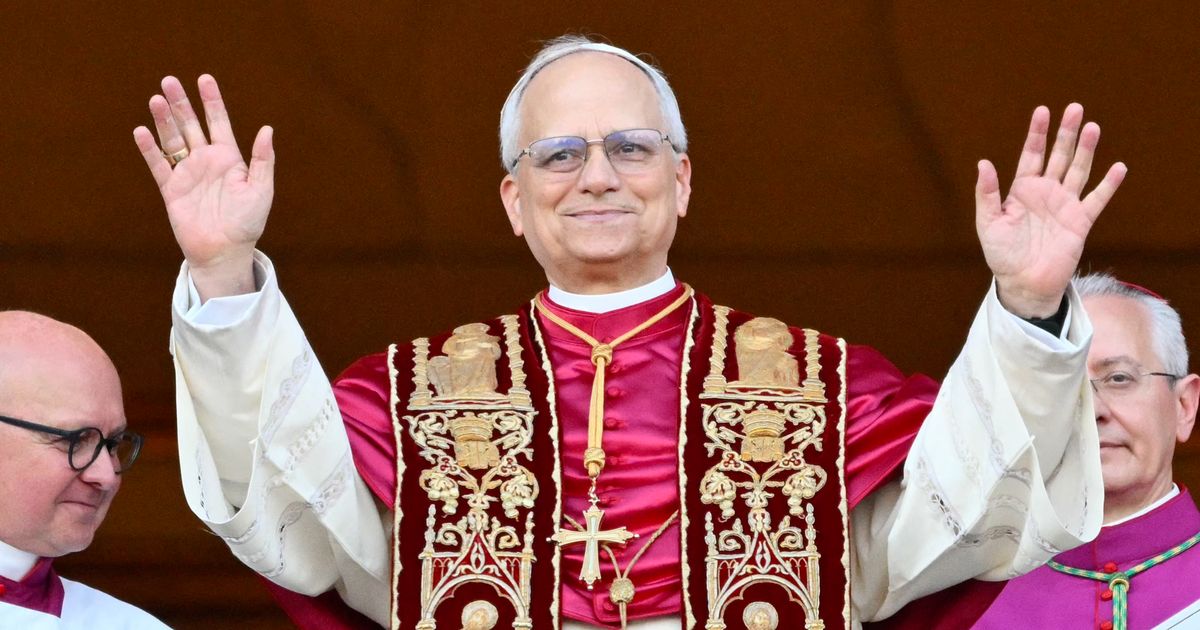
Have You Heard? The New Pope Is From Chicago
New York Post

Meet Robert Prevost, Who is Now Pope Leo
TIME Magazine

READ IN FULL: Pope Leo XIV’s full first speech - Washington Examiner
Washington Examiner

The Conclave Just Did the Unthinkable
The Atlantic

In Pope Leo XIV, Donald Trump Finds a New Foil
TIME Magazine
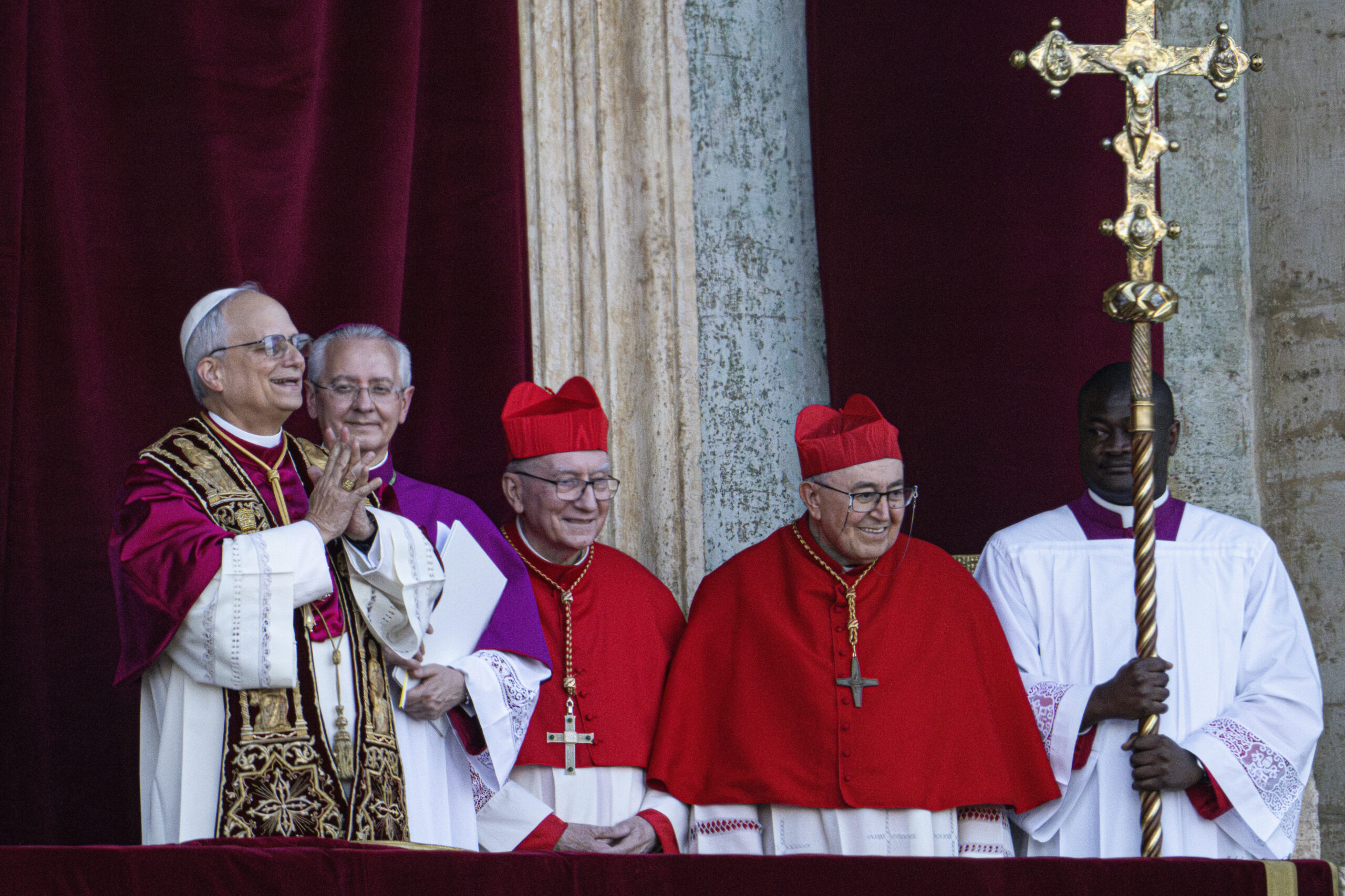
Leo XIV: What’s in a Name?
New York Sun
First American Pope Leo XIV Voted in Republican Primaries, Records Show
Washington Free Beacon
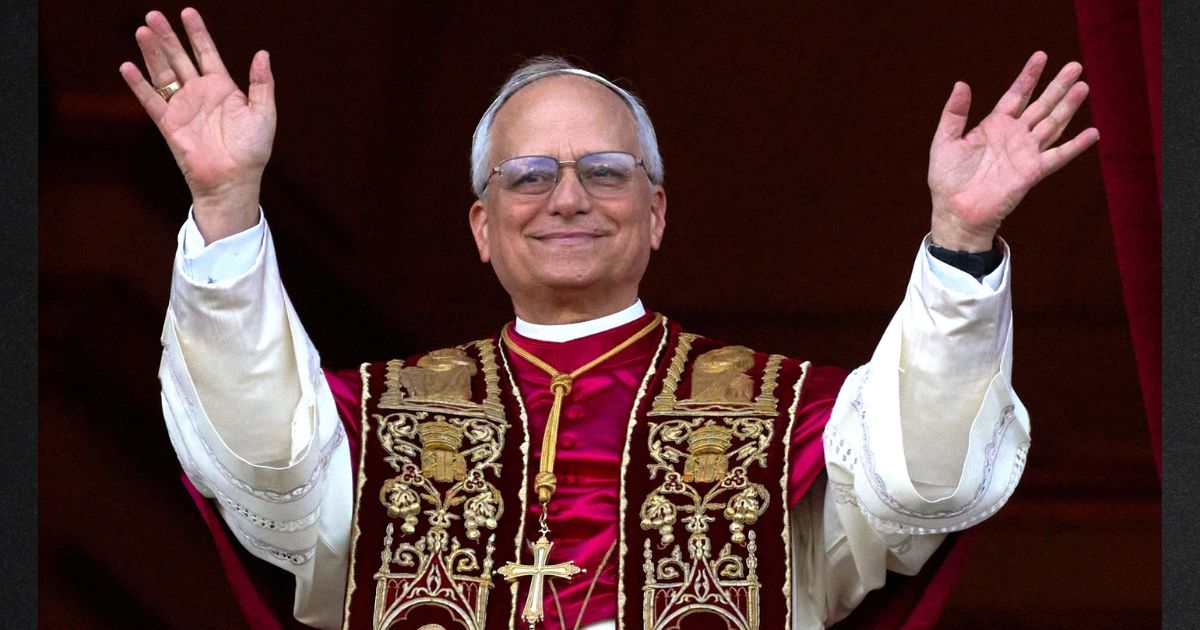
Newly-Elected American Pope's Voting History Revealed
Western Journal

Chicago and Illinois politicians praise 'Da Pope'
Chicago Sun-Times
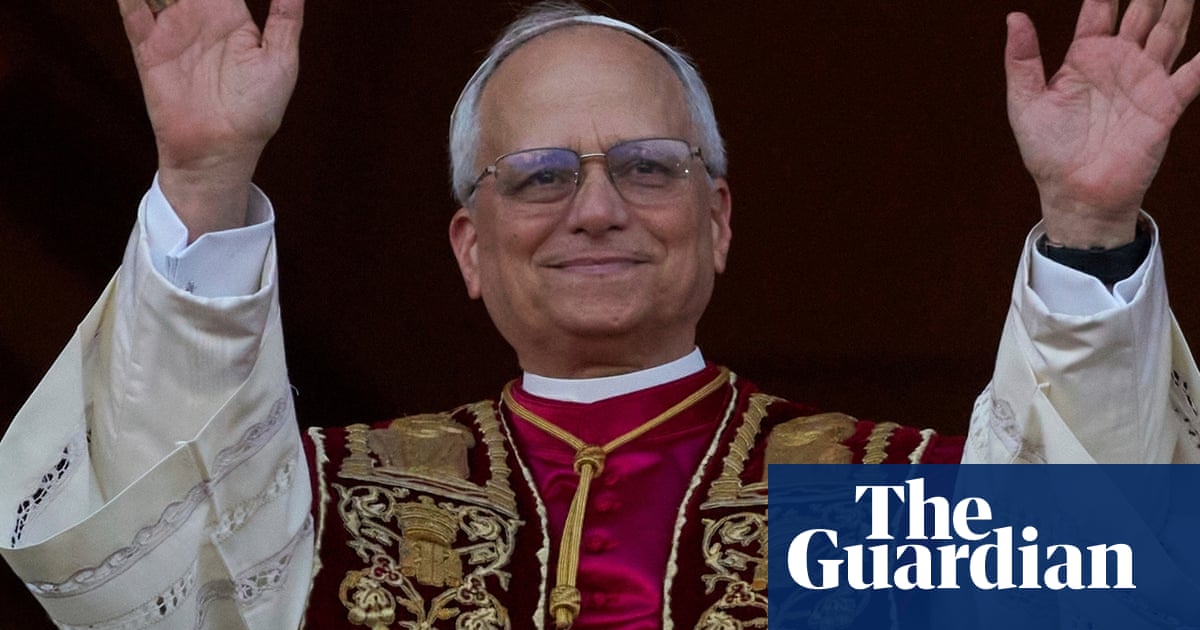
Share your views on Pope Leo XIV
The Guardian
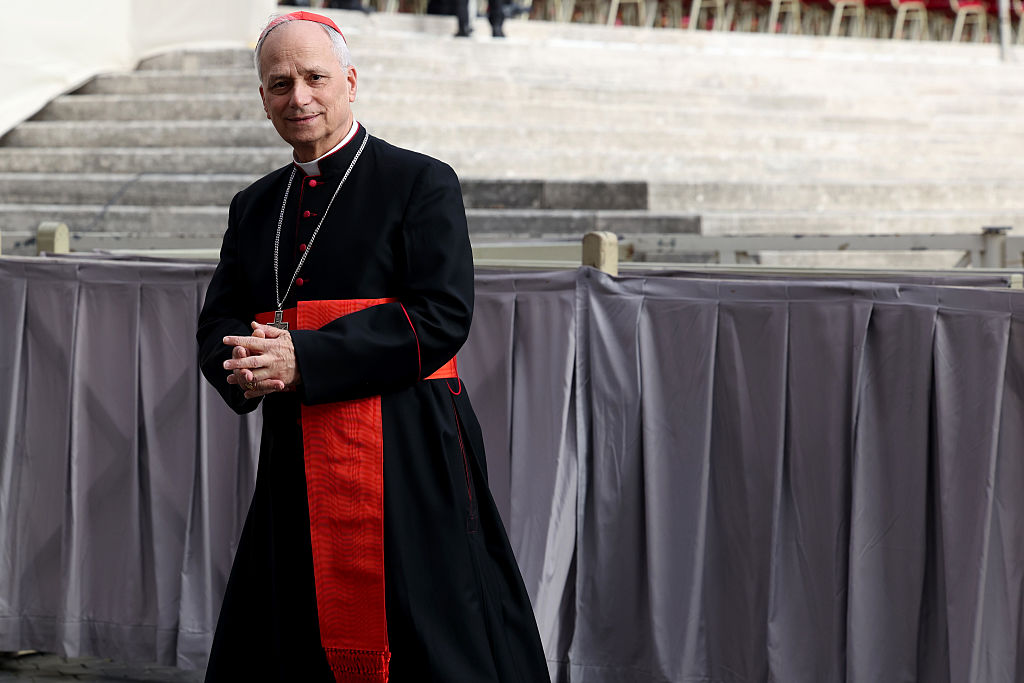
Is Leo truly the first American Pope?
The Spectator World

What do we know about the new pope?
World News Group

Cardinal Robert Prevost, born in Chicago, is the first American pope
Chicago Sun-Times
Meet Robert Prevost, the first-ever pope born in the US
Business Insider

Breaking: Cardinals Elect First Ever American Pope
Western Journal
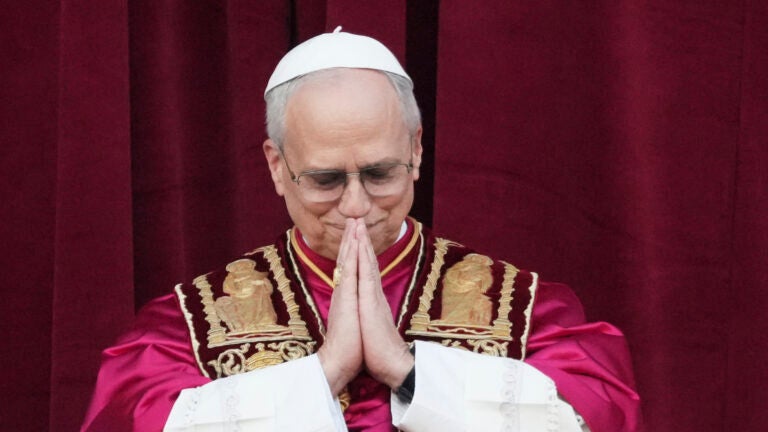
Who is Robert Prevost, now Pope Leo XIV?
Boston Globe

Trump welcomes Pope Leo XIV as Catholic Church's first American pontiff
Washington Examiner

How World Leaders Are Reacting to Pope Leo
TIME Magazine
Prevost, now Pope Leo XIV, overcame a taboo against a US pontiff
Associated Press
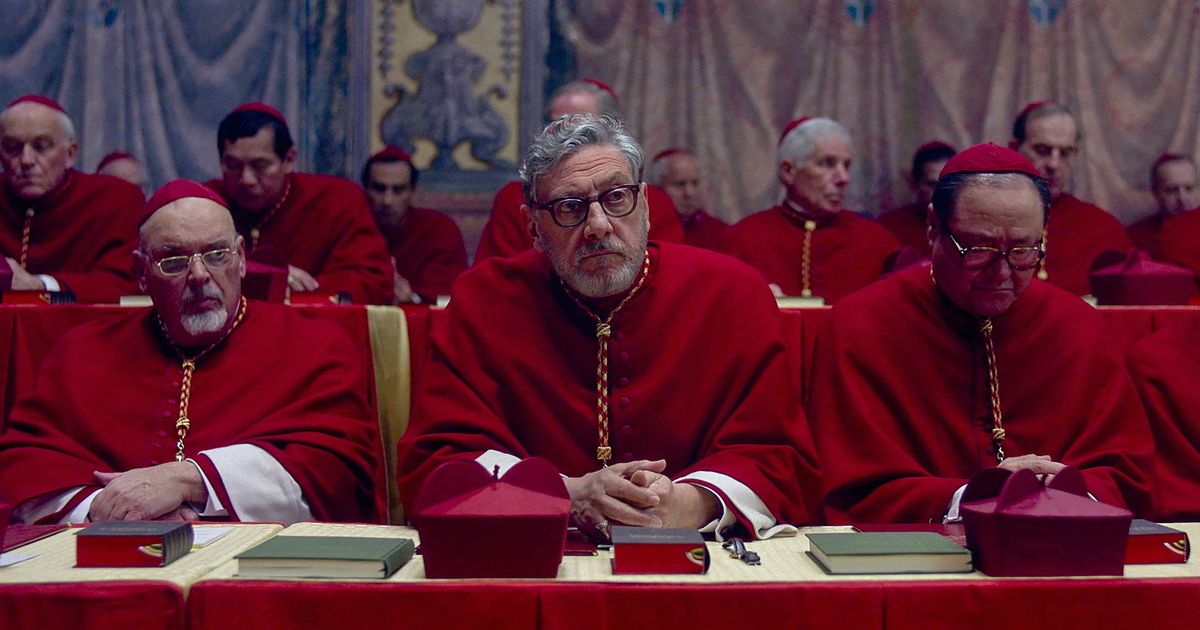
Which Papal Candidate Is Which Guy From Conclave?
New York Post

Who is Robert Prevost, the first American pope?
Boston Herald

Conclave Picks Prevost, Who Will Be Pope Leo
TIME Magazine
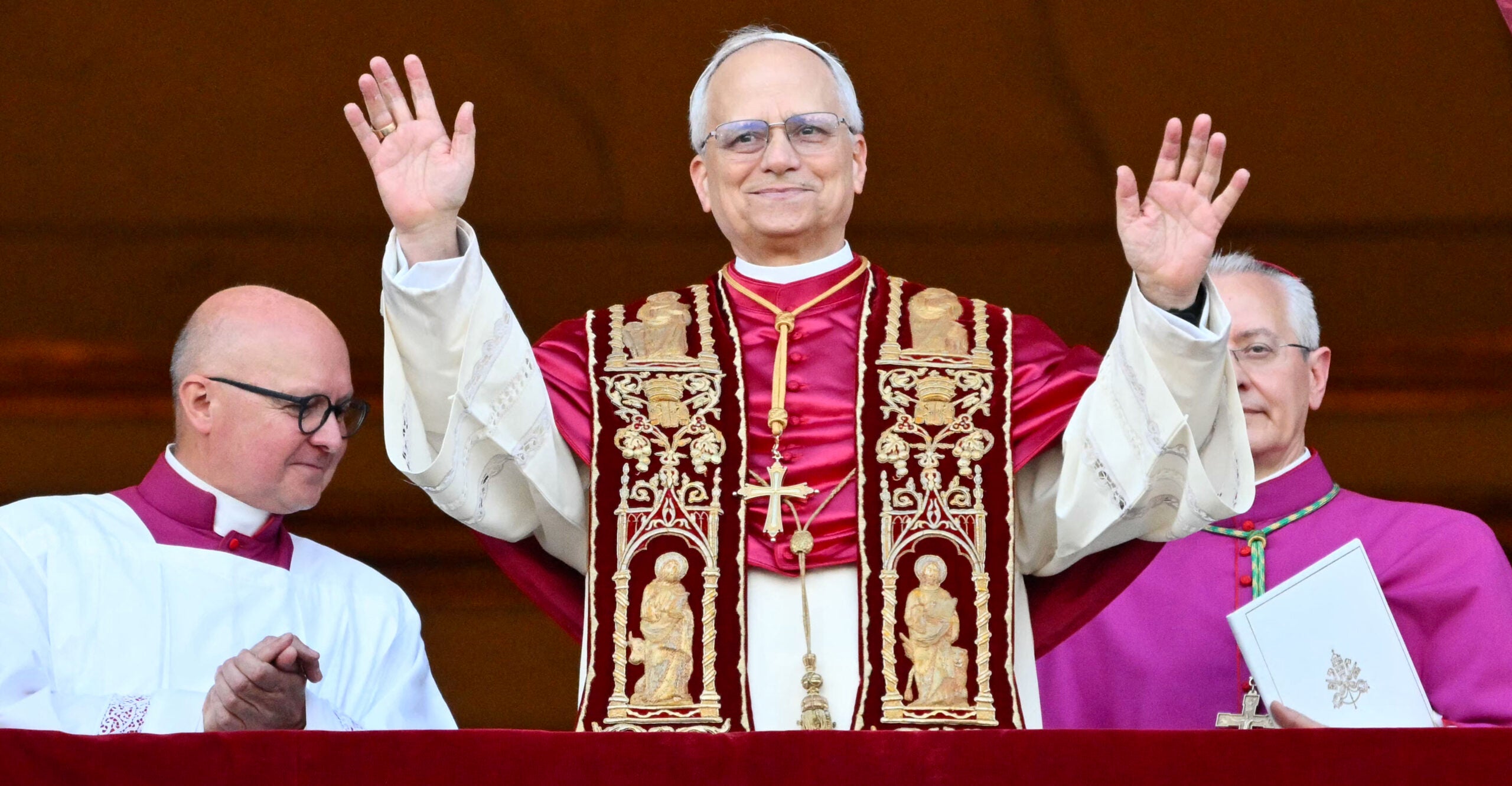
Catholic Cardinals Select American to be Pope
Daily Signal

Pope Leo XIV: Cardinal Robert Prevost becomes first-ever American pope
Washington Examiner

Catholic Church introduces first-ever American pope
World News Group
Leo XIV, the new Pope
El Pais
Subscribe to unlock this story
We really don't like cutting you off, but you've reached your monthly limit. At just $5/month, subscriptions are how we keep this project going. Start your free 7-day trial today!
Get StartedHave an account? Sign in
Overview
Cardinal Robert Prevost was elected Pope Leo XIV, becoming the first U.S.-born pope on May 8, 2025. His election sparked celebrations in Chicago, where family members highlighted his focus on social justice and climate action. Leo's inaugural address stressed peace and a commitment to the marginalized, continuing Pope Francis' legacy. Previously outspoken on climate issues, Pope Leo XIV aims to engage with global leaders, including Donald Trump, to foster dialogue. Amid fanfare in St. Peter's Square, tens of thousands celebrated the moment, emphasizing the historical significance and humor surrounding this unique papacy.
Report issue

Read both sides in 5 minutes each day
Analysis
- Pope Leo XIV's election reflects a progressive stance within the Catholic Church, emphasizing social justice issues and the experiences of marginalized communities, particularly relevant in today's global political climate.
- His commitment to championing the rights of the poor aligns with the proactive legacy of Pope Francis, suggesting a continual focus on immigrant rights and climate action as critical components of his papacy.
- With a past of critical views on U.S. immigration policies, Leo XIV's leadership indicates a potential challenge to the ideologies of the current U.S. administration, anticipated to foster a more compassionate narrative at the Vatican.
- Cardinal Robert Prevost, known as Pope Leo XIV, marks the first American pope, signifying a break from the traditional European papacy, fueled by his dual citizenship and long tenure as a bishop in Peru, reflecting a connection to diverse global Catholicism.
- His papacy aims to continue Pope Francis's focus on social justice and inclusivity, highlighting the need for a missionary church that serves the marginalized, as demonstrated in his first Mass where he addressed cardinals in multiple languages and echoed Francis's teachings.
- As the first pope from the United States, Leo XIV inherits a delicate balance, fostering unity amid the polarized U.S. Church while promoting dialogue and collaboration in a church that serves the needs around the world.
- The election of Pope Leo XIV represents a historic moment for U.S. Catholics, with many celebrating the newfound representation, yet concerns linger about his ability to unify conservative and progressive factions within the Church amid heightened polarization.
- Despite his American roots, Leo's extensive experience abroad, particularly in Peru, positions him as a figure capable of addressing both U.S. and global concerns, highlighting a balance in leadership that may resonate with traditional Catholic values.
- While initially welcomed, skepticism remains regarding Leo's progressive inclinations, especially given criticisms from conservative circles about the Church's direction under more liberal interpretations, particularly surrounding issues of doctrine.
Articles (194)
FAQ
Cardinal Robert Prevost is a 69-year-old Chicago native and an Augustinian friar. He is an alumnus of Villanova University and was appointed cardinal less than two years before his election as Pope Leo XIV, making him the first American and Augustinian pope.
Pope Leo XIV emphasized peace, social justice, and a commitment to the marginalized, stating his intention to continue Pope Francis' legacy. He spoke about building bridges and welcoming all, highlighting the church's role in working together for a more inclusive world.
Pope Leo XIV is the first U.S.-born pope and the first Augustinian friar elected as pontiff, making his election a landmark event in Catholic Church history.
Pope Leo XIV has been outspoken on climate action and social justice, aiming to engage global leaders to foster dialogue and address these pressing issues.
Cardinal Protodeacon Dominique Mamberti announced the election from the central loggia of St. Peter's Basilica following the traditional 'Habemus Papam' formula after white smoke appeared from the Sistine Chapel.
History
- 6M

 4 articles
4 articles
- 6M

 4 articles
4 articles
- 6M

 4 articles
4 articles
- 6M

 4 articles
4 articles
- 6M

 4 articles
4 articles
- 6M

 6 articles
6 articles


